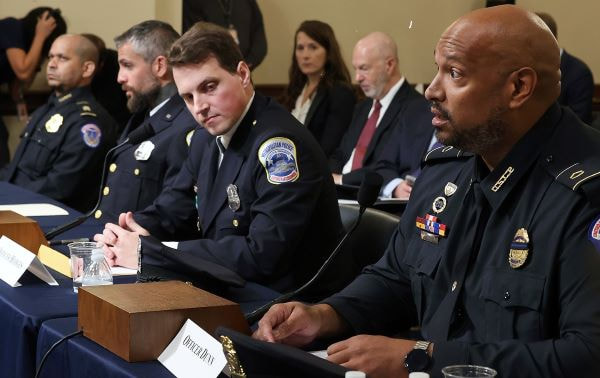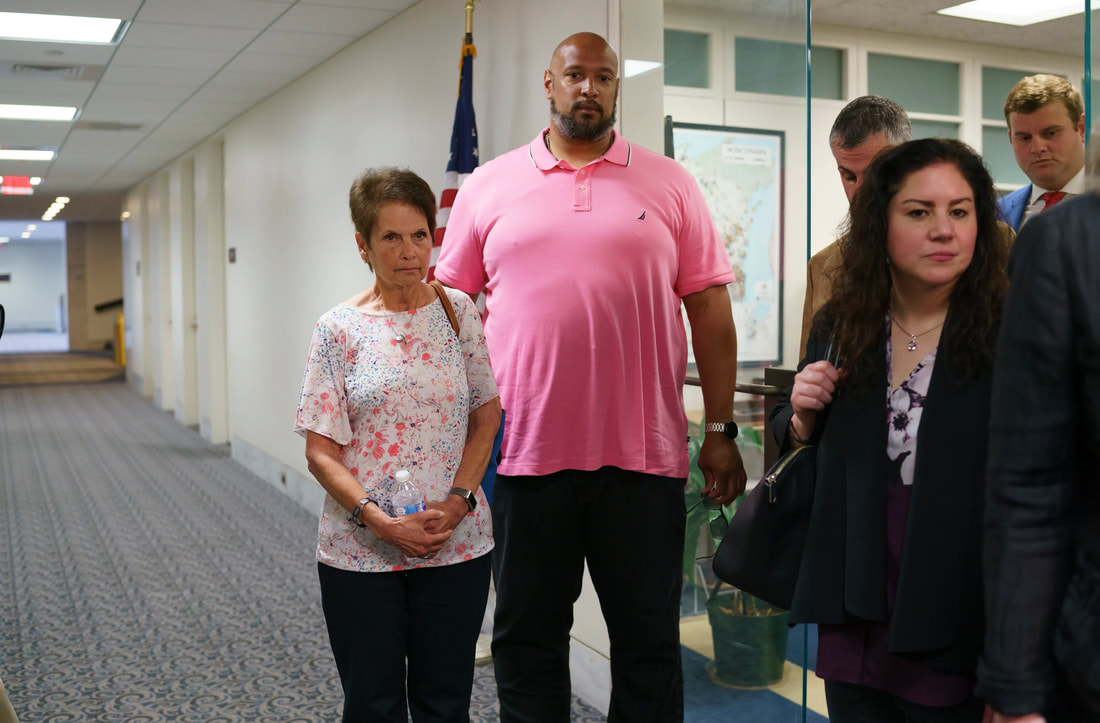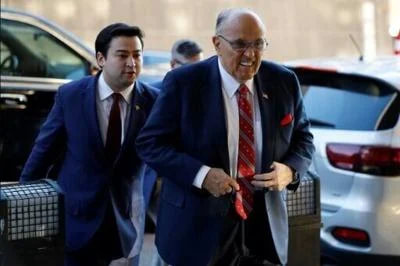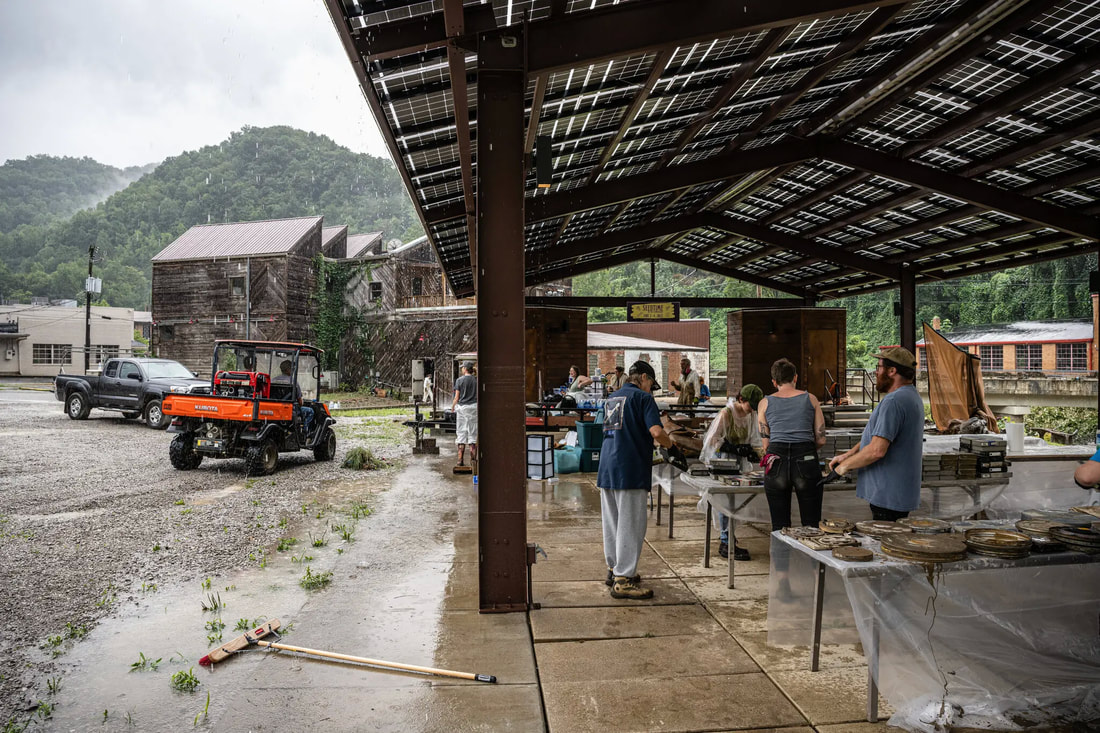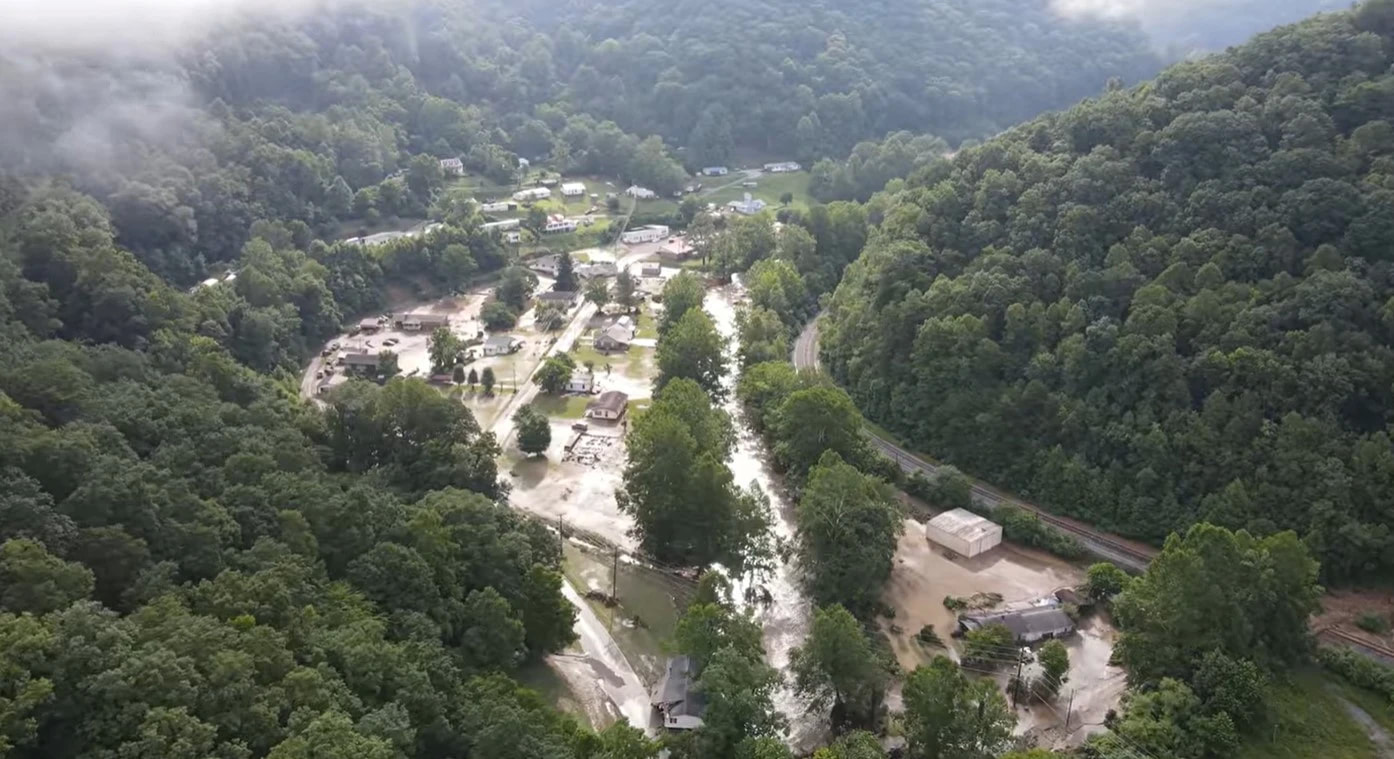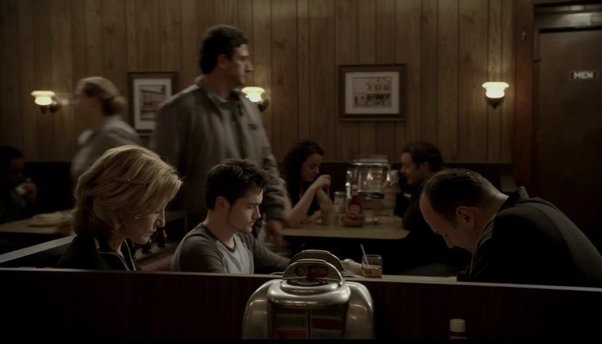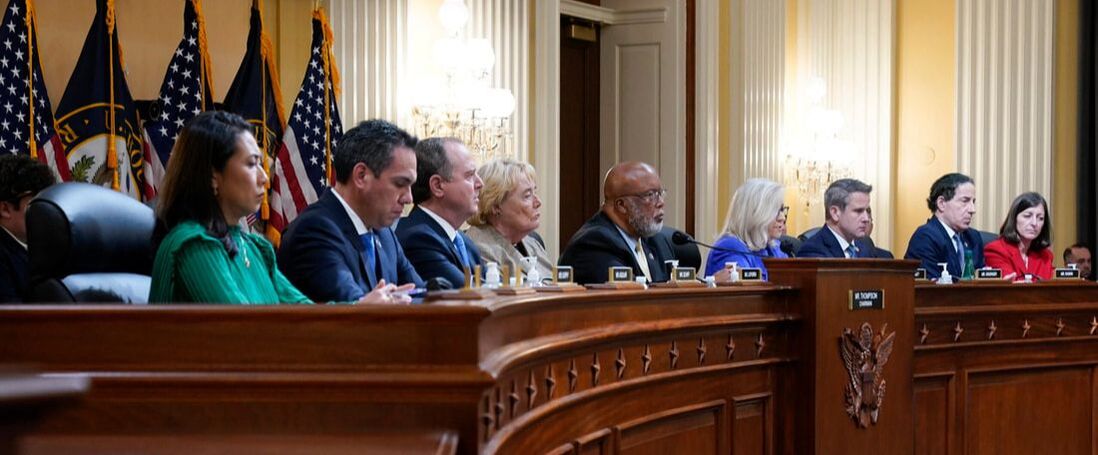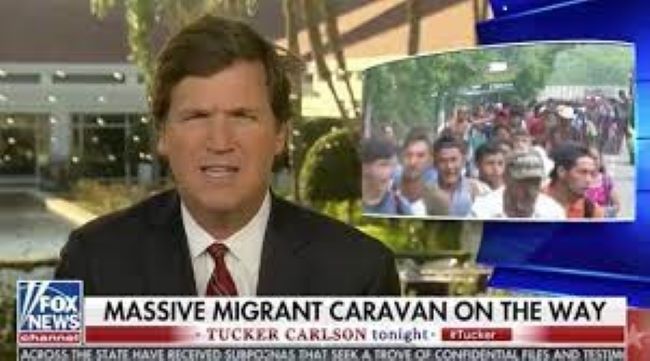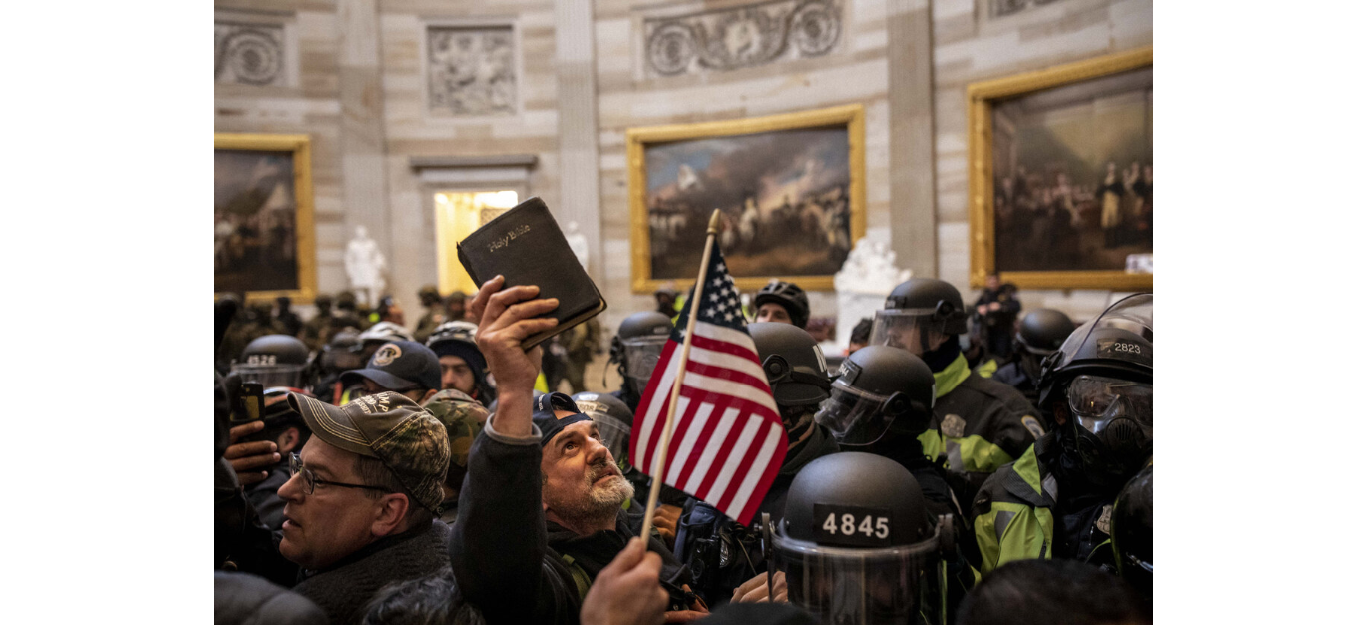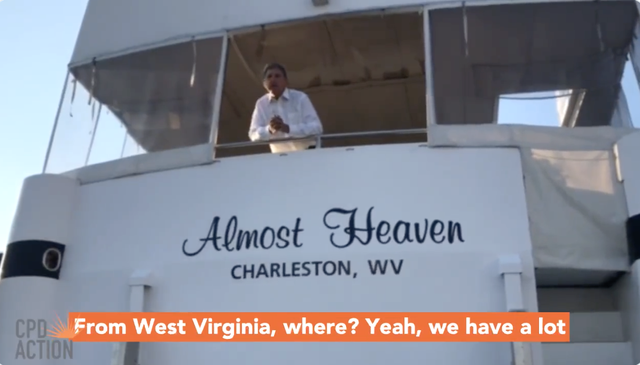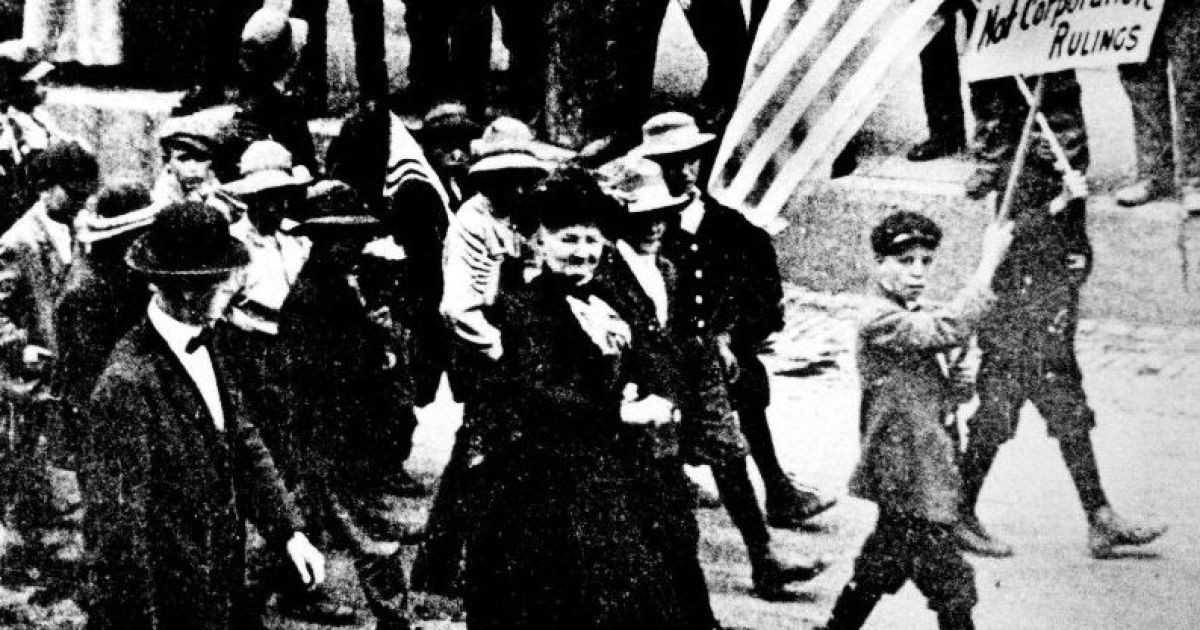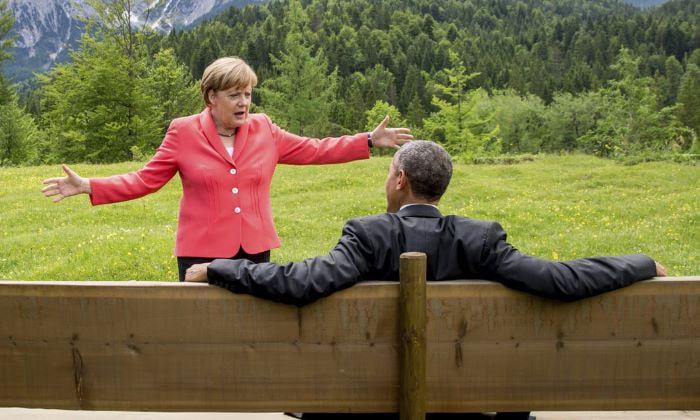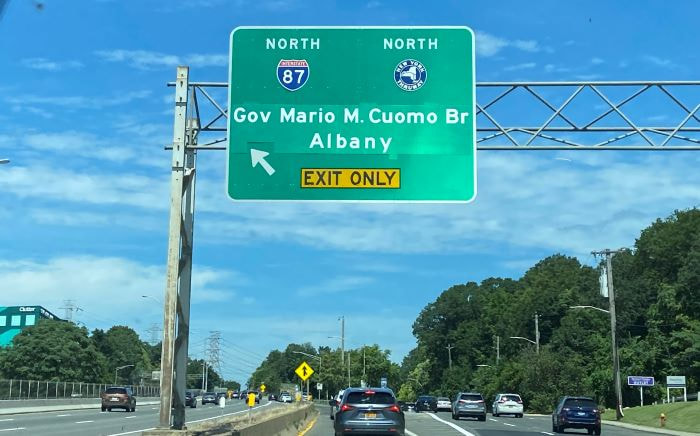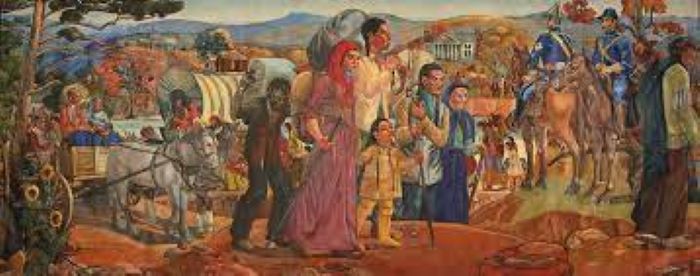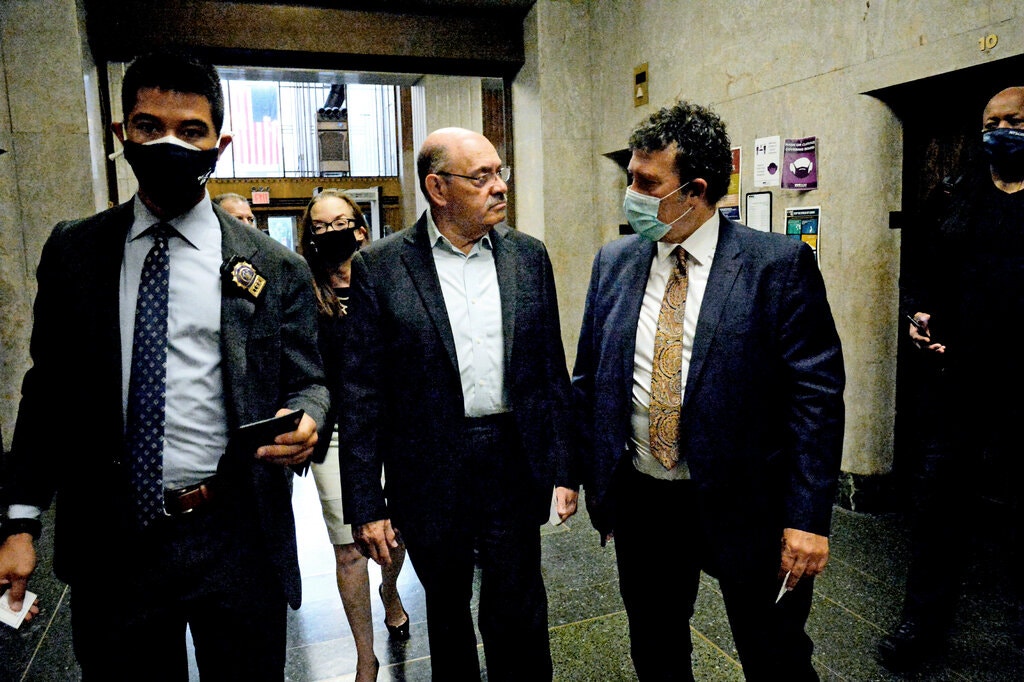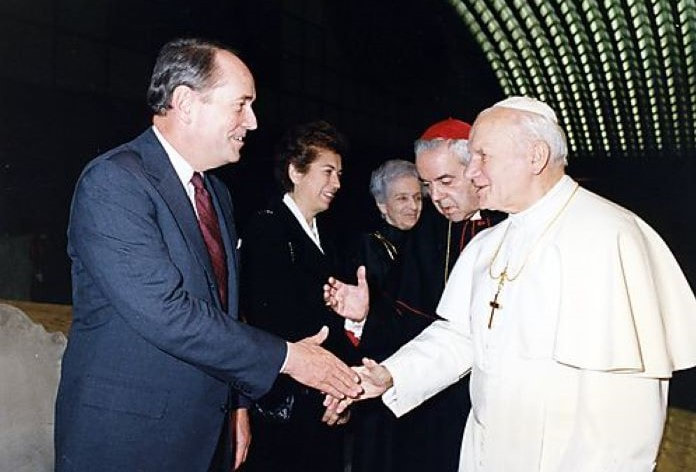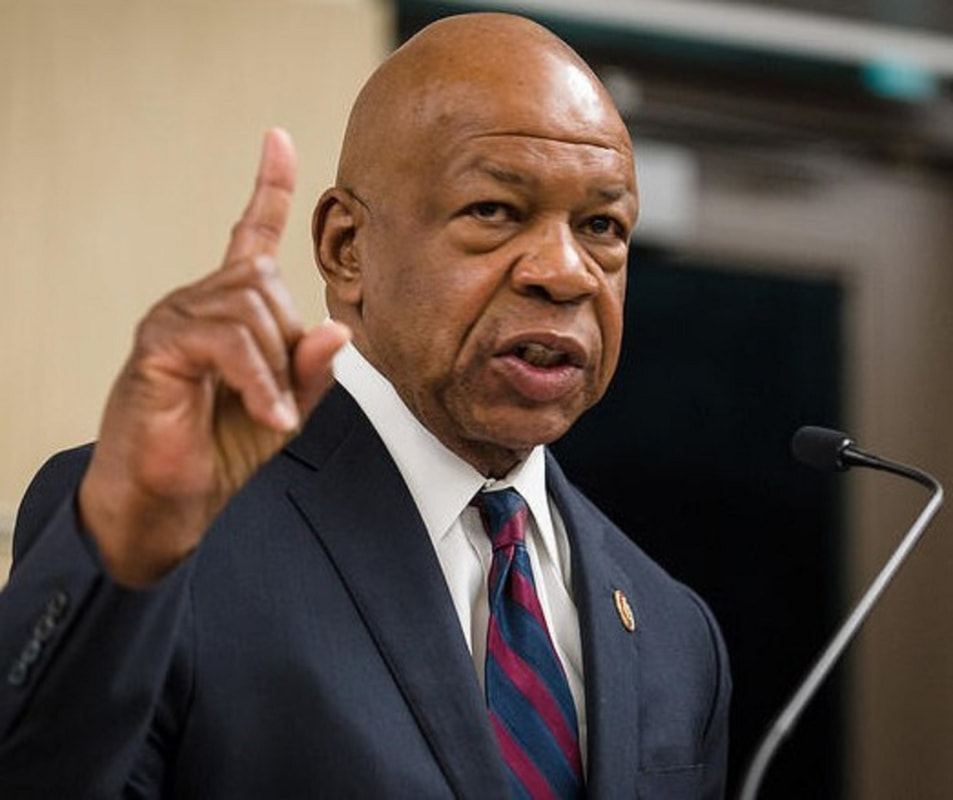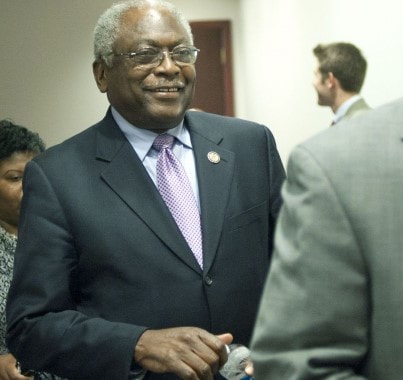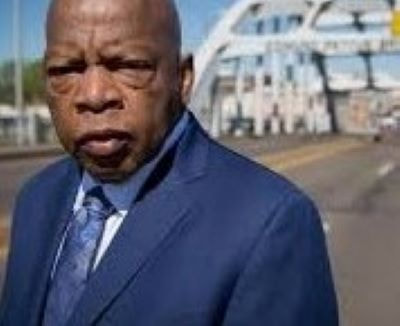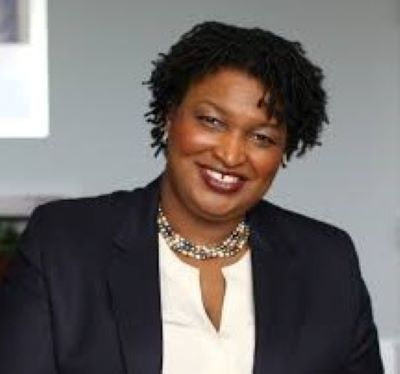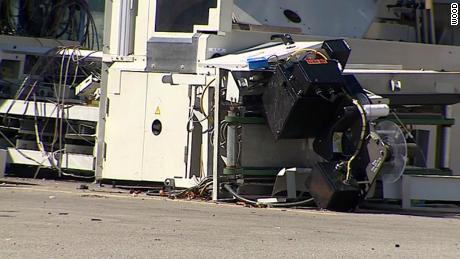|
I was trying to watch the hideous Mets -- an act of avoidance from the huckster running for President.
Not to compare, but the Mets were not watchable, either. Fortunately, fortunately, the Upstate members of the family reported they were watching Caitlin Clark light up the NCAA quarterfinals. Since retiring, I've been pretty much avoiding all sports except baseball (which the Mets used to play) and soccer. Other things to do. But on this night of the April Fools, I knew a refuge when it was suggested. I watched just enough of this heady player loft her shots from the 3-point sector - helping to beat LSU and move into the semifinals next weekend. I cannot compare Clark with some of the great female players I have seen, but she is terrific. Maybe Clark is "a unicorn," as a Japanese friend who knows her baseball calls Shohei Otani, slugger and pitcher, currently and maybe for a long time under suspicion for being in some kind of cahoots with his interpreter with a gambling jones. I wonder if anybody in Major League Baseball has linked Ohtani and his associate with the deluge of gambling ads on TV -- snarky losers trying to get even, in Rob Manfred's world. The commercial-makers know their suckers. Anyway, there is a lot to avoid in a year of a grifter waving his new campaign product, a Bible. What a world. Meantime, the Mets stink -- four straight losses to open the season. I have the suspicion that owner Steve Cohen has messed up the decent mind of Pete Alonso, who looks lost, since the owner told him to have another great year and maybe they could do business. Creeps everywhere. Then again, as a family Mets sufferer asked Monday night when I suggested the owner had submarined Alonso, "Maybe. What's Lindor's excuse?" The Mets announcers were giving a gloomy weather forecast for the next night or two. Wishful thinking on everybody's part. Anyway, Caitlin Clark will be tossing up 3-pointers Friday night against Connecticut. She is worth watching. We did not know Harry Dunn until that evil day of Jan. 6, 2021, when the defeated President of the United States unleased a swarm of cut-throats and misfits and racists on the Capitol building.
Harry Dunn was in the middle – set up by a mixture of incompetence and malice within the government. No warning, no equipment, no backup. He and other Capitol police had to fight for their lives, mostly using bare hands against thugs sent by Donald Trump. Now their struggle for life is part of the record. With dignity and intelligence, Harry Dunn has testified to the Jan. 6 committee and has given interviews to the media. He is a familiar figure, a huge man – 6 feet, 7 inches, 325 pounds, a former lineman for James Madison University, the national Division I-AA champions in 2005. His bulk and his desperation saved his life, and his humble wit and wry smile and his college-educated vocabulary have made him a familiar figure. I was going to write about Harry Dunn and his new book anyway, but on Friday morning I learned he is running to replace John P. Sarbanes, who is retiring. According to Luke Broadwater of the New York Times, five members of the Maryland state legislature have also announced their intention to run. It is doubtful that any of those candidates have had the public testing of Harry Dunn, since the day he fought for his life, only to hear racist slurs against him, and see rioters flash their own police shields and say they were staging the “demonstration” to help the country. “At one point, I confronted a group of terrorists in the crypt,” Dunn recalled in an interview with Broadwater on Feb. 21, 2021 “There were downed officers behind me, and I’m like, ‘I have to hold this hallway.’ I’m tired, but I said, ‘Y’all not coming through here.’ They said, ‘We’re coming. This is our house. We’re taking over.’ That’s when I said, ‘We’ve got dozens of downed officers here. Why are y’all doing this? Get out!’ "I guess it was a group of the Oath Keepers and they appeared to be concerned. ‘Officers are hurt?’ That’s when one guy said, ‘We’re doing this for you,’ and showed me his badge. He was an officer. But they didn’t get through me. Only one person attempted to get through me at that time, and he met the floor. He met the floor. Finally, officers with armored gear responded and held that area.” At one point, Dunn defended the office of Nancy Pelosi, then the speaker of the House, and a chief target of the mob that seemed poised to lynch her. Later Dunn sized up what had happened that day: “I sat down on a bench with a friend of mine who is also a Black Capitol Police officer and told him about the racial slurs I had endured,” Mr. Dunn recalled during his testimony to the Jan. 6 committee. He added that he “became very emotional,” asking how such a thing could happen and yelling, “‘Is this America?’” “I began sobbing, and officers came over to console me,” he said. Harry Dunn has become a familiar figure – often appearing with Nicolle Wallace of MSNBC and other interviewers. In October, Dunn released his book, “Standing My Ground: Standing My Ground: A Capitol Police Officer’s Fight for Accountability and Good Trouble After January 6th,” by Hachette Books. During the Congressional hearings, Harry Dunn sat with fellow officers who had been injured by the mob that day. When rogue officers and service veterans stormed the capitol, some members of Congress used their military training to escort colleagues toward safety. "Get the troops out of the hot sun" -- that's the first thing I was taught in college ROTC. At the moment, it seems to me that Harry Dunn, proclaimed candidate, has the stature, physical and moral and mental, to help protect this threatened country. The good guys won.
Nobody knows how much of the $148-million will ultimately go to Ruby Freeman and her daughter, Shaye Moss. But in a disheartening time of legal stalling, when it looks like the United States cannot protect itself from those who would tear it apart, at least mother and daughter have been awarded an astounding judgment against Rudy Giuliani. The broken-down bully calculated that he could charge the poll workers with trying to swing the 2020 election, if he used the stereotype of Black criminality. Was this Rudy Giuliani all along? Did he build his career as public prosecutor on bashing the minorities? Was he playing to white prejudices – bragging about busting the squeegee guys who tried to clean windshields for quarters on the clogged streets of Manhattan? Our hero. Protecting us. But he wasn’t smart enough when he stuck government offices near the Twin Towers, already threatened by violence. Was he ever anything more than a mirror image of the racist punk he served, who grew up on Midland Parkway in posh Jamaica Estates? They knew the white buttons to press. Bullies know this stuff. Like in the 2016 campaign when Trump pointed out a Black heckler and, from a safe distance, Trump made a heroic punching gesture and said he would love to…. Big man. Playing to the racists who have come out from under the rocks. (Plus, American anti-Semites who have dragged out their inbred prejudices during about the violence in the Middle East. It never went away.) As for domestic politics: Rigged election? Let’s pick on the Black women. But these Black women had something on their side – faith and resolution. When they testified at the Jan. 6 hearings, they were a monument of righteousness. The mother, Ruby, sat at her daughter’s shoulder, willing her strength, a reverse-gender Pietà. And those two women were flanked by officers who had been heroes in protecting the Congress on that horrible day -- big Harry Dunn and his colleagues. On Friday, outside a courtroom in DC, the mother and daughter seemed happily stunned by the jury decision. They were not spending a penny of it, inasmuch as Rudy may very well be poor. Plus, what is the cost of the two women hearing Trumpite footsteps and seeing Rudy shadows for a long time? But the church ladies were cheered by the legal support, and when they made their statements they did not gloat. In fact, they witnessed their faith on the sidewalk – street preachers, the resolution one hears at the Black churches. They can’t exactly go home again. Too many bad people out there. But they could get in a protected auto and leave the sidewalk to a broken-down former prosecutor, on a perp walk, his role now reversed. I used to know Rudy Giuliani – Yankee fan, America’s mayor who stood up big when the airplanes hit us. He was everywhere that terrible autumn, walking with the cops and the firemen and the priests on the narrow streets of downtown. And in his spare time, he went to root for his Yankees as they advanced to the World Series. Not even two months after the attack, Giuliani managed to follow the Yankees to games in Arizona. He was an appealing figure, waiting with reporters for the clubhouse doors to open. “You’re crazy,” I said to a man operating without sleep, on sheer nerve. “Yeah,” Giuliani would admit with a weary smile. And nobody would deny him the cross-country flights, just for a few hours of rooting, normalcy. Eventually, he signed up to serve the bully, the bigot, the liar, who somehow became president. Instead of rooting for the fabled Yankees, Giuliani was now leading the cheers, giving terrible advice to a real-estate phony. They deserved each other, as Billy Martin once said about a much less important issue. Giuliani knew the formula. Blame the Black women. Now he is an old, feeble man, with the shakes, rumors of drinking, his teeth sticking out of his mouth, Rudy the Fool, but still capable of sounding like Rudy the Prosecutor. The truth will come out, he said on the sidewalk on Friday, but instead, guile seemed to ooze out of him, like hair dye on a hot summer day. He used to go after the squeegee guys. Then he served Trump, the real-estate exaggerator. Then he tried to bash church ladies. Bad move, dude. A young Black man is shot knocking at the wrong door. A young woman is killed after her car pulls into the wrong driveway. And then there are the police shootings. People are trigger-happy, and I know when it got worse – back in 2016 when a real-estate grifter and reality-show character ran for the presidency. He was sending a message to a huge segment of America that it was time to get tougher. Just look the sneers and cheers behind the bad actor, as he goads them into action. People were getting dumber, by choice, and a swath of the country welcomed his message to gear up. America as a reality show was on my mind as I read an analysis of the late Jerry Springer by Jane Coastan in The New York Times on Saturday. She describes Springer as a kind of Dr. Frankenstein who got caught up in his own monster, but she also suggests that he knew what he was doing, all along. Reality shows pay well. I never watched the grifter’s show (having met him a few times) and I never watched Springer’s show, either but I did pay attention to him because he was another Queens guy (Forest Hills HS) and had gone into politics in Cincinnati when I was living down-river in Louisville. Turns out Springer and the more dangerous reality show buffoon were both descended from Germany – one was a Jewish refugee, born in a makeshift maternity ward in the Underground in wartime London, the other whose father attended Nazi Bund rallies and lived in posh Jamaica Estates, Queens. They both understood their audiences. One went into politics to play to the angry white people in America, the other went into television to play to people who liked life on the violent and kinky side. The young grifter also knew the violent side – somebody who would know has told me about the grifter’s father being bandaged all over, recuperating at home after some kind of organized beating. Lesson learned: Just give some orders and people will go out and break some bones. That’s what he was suggesting at his rally in Las Vegas in February of 2016. His subtle political message: How he would like to punch that heckler. Just let me at him! But America has become too soft to allow that kind of frontier justice. Still, thanks to the gun merchants and the Republican lawmakers and the sour Americans waiting behind their front doors, we have quickie frontier justice – and students being shot up in school, and legislators banning the elected messengers. Plus, Charlottesville. Good and bad on both sides, right? America has always had guns. I moved to cover Appalachia in 1970, and some journalist pals at the Louisville Courier-Journal (now terminally Gannett-ized) told me about the television journalist in 1967 (from dear, sweet Canada!) who ignored the warning not to intrude, and was shot dead. The recluse served a year. Yes, I thought about that every time I needed to knock on a door in some distant holler. But now the violence is spreading. People go to political rallies, packing. The grifter is finally facing legal justice, after a wasted year from the sclerotic Justice Department. And good grief, he's threatening to run again. RIP, Jerry Springer. All he did was give Americans what they liked in bestiality and incest and brawling. Seems so innocent now. In the modest World Cup history of American men’s soccer*, there is always room for something new. This year’s memory may very well be how Christian Pulisic propelled (a) the ball and (b) himself into the goal for what became the only score as the U.S. beat Iran and advanced to the knockout round. Pulisic was hurt, barely hobbling off the field and going to the hospital rather than playing in the second half. The overnight word was that he had X-rays of the abdomen – no speculation about whether he would play again in this World Cup. For now, Pulisic’s turning himself into a human bowling ball could become the stuff of legends – Willis Reed hobbling onto the court just before the final game as the Knicks beat the Lakers in the 1970 NBA finals and Kirk Gibson limping up to pinch-hit a homer for the LA Dodgers in the 1988 World Series. Pulisic had been wearing a serene smile in the minutes before the match, as the American and Iran teams marched out for the ceremonial playing of the anthems. I have a theory about the new look on Pulisic, who has often been the captain, based on his many vital goals. Instead, Coach Gregg Berhalter chose Tyler Adams to be the captain in this World Cup. Adams, an active midfielder, has been the core of the team in these three games, showing up everywhere, a man on a mission. He also displayed a maturity worthy of a diplomat when lectured by an Iranian reporter in a press conference the other day, after some knuckleheads in the U.S. federation had altered a version of the Iranian flag, just what was needed in dicey times.) (The poor Iranian players had a hollow look to them, because of the political overtones back home, rumors that Iranian women were being photographed by their government for wearing western fan outfits in the stands. And later there were concerns the Iran loss could be turned into more unrest, perhaps even scapegoating the players.) By contrast, Pulisic’s relaxed demeanor was noticeable on tv – a major difference from the twitchy look he carries around with Chelsea, where he rarely gets to play much. In the first two games in Qatar, in his first World Cup, Pulisic set up the only American goal in the first game, but his play was spotty, and his corner kicks were ineffective. Had people been over-rating him? I began to wonder that myself. But in Tuesday' third game, Pulisic seemed more centered, getting in the right position to score the goal before crashing into the keeper and the ground. Pulisic’s goal came in the 38th minute, with 52 official minutes left, and an agonizing 9 more of extra time, with the TV reminding us, basically every minute, that the U.S. could advance only with a victory, not with a draw. In a simultaneous match, England was on its way to beating Wales, 3-0, which meant Iran could have advanced with a draw, whereas the U.S. could only advance with 3 points from a victory. The other American players saved the day in the steam bath in Qatar, with players on both sides limping from cramps as well as the normal knocks. The World Cup did not always hold simultaneous third games in each group. In the first World Cup I covered, 1982, West Germany and Austria played in Gijón, Spain, after Algeria’s match was over, and they knew a 1-0 victory by West Germany would allow both teams to advance, so they waltzed and they waltzed, thereby screwing Algeria. That 1-0 result is now known as the Disgrace of Gijón. The U.S. has had other operatic third matches in World Cup play. In 2002 in South Korea, they were drubbed, 3-1, by Poland but at the same time in another city, a referee doled out two red cards to Portugal, making it possible for the host team to advance, along with the Americans. "This is a very good day for U.S. soccer," said Brad Friedel, the American goalkeeper, who added: "This was also a very lucky day for U.S. soccer.” In 2010, the last of the eight World Cups I covered, the U.S. teetered into the third match with Algeria, needing a victory to advance. In the first minute of extra time, the U.S. staged a full-court break, with keeper Tim Howard heaving an outlet pass to Landon Donovan, who advanced the ball to Jozy Altidore who centered the ball to Clint Dempsey who banged a shot off the keeper, but Donovan followed the ball and scored the goal. Instant history. Now there is a new landmark – Christian Pulisic’s tumble into goalmouth, and into history, or at least into a match with the Netherlands on Saturday. (*--the American women won their championships early and often, and now other nations have caught up, and good for them.) *** (Below: Tyler Adams, U.S. Captain. Could be secretary of state. Check out his thoughtful longer version online.) When I covered Appalachia from a home base in Louisville, some of the grand leaders of Appalachia had a suggestion for me: why not live in Whitesburg, the center of the universe?
They had a point – “they” being Harry Caudill, lawyer and writer, and Tom and Pat Gish, who put out the great weekly newspaper, The Mountain Eagle (“It Screams.”) Those grand figures of the Kentucky mountains both lived in Whitesburg, in Letcher County, current population 2,200. Also in Whitesburg was Appalshop an invaluable repository of the images and words and sounds of mountain people, mountain culture, mountain history. (See Randolph Fiery's tribute to Appalshop, Comment No. 9.) Now Whitesburg, and Appalachian history, have been crushed by the floods that have marauded through Eastern Kentucky in the past week. The floods have spread mud over every inch of the treasures of Appalshop. I am sick. Here's the NYT article. Fifty years ago, that might have been me writing it. https://www.nytimes.com/2022/08/04/us/kentucky-flood-appalshop-archives.html?searchResultPosition=1 I have already written about the stricken counties and given three general funds. (below) How can I tell anybody to prioritize a center of history against hospitals and food drives and housing centers? I only know that Appalshop is special, representative of the world that is being washed away because most elected public officials and industry (Here’s looking at you, Commodore Manchin) pay no attention to the region they helped dig up. Here’s a link for Appalshop. https://appalshop.org/news/appalachian-flood-support-resources Now back to our previous disasters: *** In my first month on a new job covering Appalachia, I happened to be nearby when the mine blew up on Dec. 30, 1970. I drove until I found the narrow road leading to the site where 38 miners had been killed in the dog-hole Finley mine at Hyden, Ky. Around 8 or 9 PM, I noticed a Red Cross truck, with long lines, and I waited my turn for, as I recall, a cheese sandwich and a coffee, for which I was extremely grateful. The Red Cross was there at other disasters, like the one at Buffalo Creek, W. Va., on Feb. 26, 1972. People have to eat, in all those isolated towns, most of them on bottom land, inundated by the downpour and the disintegrated hillsides of Appalachia. In the latest horror story, good people and good organizations, are feeding the flooded mountain hamlets of Eastern Kentucky. The Red Cross is there, because it always is. https://www.redcross.org/donate/disaster-relief.html/?cid=disaster_brand&med=cpc&source=google&scode=RSG00000E017&gclid=CjwKCAjwlqOXBhBqEiwA-hhitORr5j455Wf9c-eU79JiSEfjnvHknssybFb8oyhktMRnu0So8boHfxoC4qkQAvD_BwE&gclsrc=aw.ds Kentucky is lucky enough to have a thinking, feeling governor named Andy Beshear. Only last December, a tornado hit Western Ky, and he set up a special relief mission. This week Gov, Beshear set up another relief mission in the eastern part of the state: https://www.pbs.org/newshour/nation/how-to-help-flood-victims-in-kentucky Also present is the World Central Kitchen, run by the Washington, D.C. chef, José Andrés. It seems he is everywhere – most recently in Ukraine – and I am not surprised that within hours workers and volunteers were somehow getting to the inundated towns, preparing hot food, good food. https://wck.org/en-us/news/kentucky-flooding I would urge a contribution to any of these funds. I take this disaster personally because this flood has brought up the same towns (Hazard, Troublesome Creek, Isom, Viper, Cutshin, Fisty…) and the same family names I saw on mailboxes in clusters along the highway (Amburgey, Webb, Sturgill, Stamper, Estep). Death and disaster introduced me to Appalachia, and now death and disaster focus my attention, again. The climate continues to grow worse and so have the senators from Kentucky -- people like Mitch McConnell and Rand Paul. Neighboring West Virginia has the coal-dealer, Commodore Joe Manchin, doing something for the good of others only when it profits him. (The Senate? Have you seen the list of 41 Republican scoundrels who have banded together to deprive military veterans of medical benefits for a burn-pit plague?) So what chance do regular Appalachia people have, trying to survive alongside the creeks and rivers in the region known as the “dark and bloody ground” to the Shawnees and Cherokees who were there before Daniel Boone and his kind. Appalachia has been messed over by government and by industry. The least we can do for the flooded people of Kentucky is help feed them. It’s too hot to go out in Southwest France, report my cousin Jen and her husband Sam. Bulletin: Wildfires in Nouvelle Aquitaine and Gironde, Meanwhile, London was bracing for 104-degrees Fahrenheit – which would set a record. Back in the southwest corner of Virginia, they are still digging out after the aptly-named Dismal River suffered a flash flood last week. I know that portion of Virginia, from my days on the coal beat. Decades of strip-mining – lopping off the tops of mountains to get at the coal – have destroyed the watersheds of Appalachia. (I wrote a book called “One Sunset a Week,” about a miner’s family in adjacent Russell County. Every time the heavens erupted, the rains washed down detritus from strip-mining, known as “red dog.” That was 1974.) If only the governors and senators of Appalachia knew about this. Perhaps they might do something. The prototypical politician from Appalachia is Joe Manchin of West Virginia. He must know the ultimate flood is coming because he’s fitted himself out with a yacht, anchored outside Washington. When the Potomac rises, Commodore Manchin is going to float safely downstream – but to where? The Commodore has been busy. Last week, he slipped up behind the helpless ancient figure of Mother Nature and whacked her with a coal shovel and stole her pocketbook. He did it by voting against the tax bill that would have at least recognized the danger of rising temperatures, and the role of fossil fuel, not only all around the world but in his home state of West Virginia. His Inner Republican said he was being a guard dog for fiscal sanity, blah-blah-blah, but we know better. We know that decisions that affect the future of world ecology are made by the (white) (old) men who are either rich or wannabes. The Commodore is not only a scientific authority but also a coal baron, via his family business. It’s in trust, the Commodore tells us. He knows nothing – just like it was a shock to him that his daughter, Heather Bresch, presided over a drug company, Mylan, when the price of EpiPens – used to treat allergic reactions -- soared to $600 a shot. This was a shock to the Commodore. These kids today never tell their parents anything. Maybe the flood on the Dismal River in neighboring Southwest Virginia was a shock to the Commodore. Maybe the flood in Yellowstone National Park was a shock to the Commodore. Maybe the heat wave in far-off Europe would be a shock to the Commodore, if he heard of it. But the Commodore doesn’t have time to monitor events in such distant places. He just wants to balance the books, like a good Republican, although he is nominally a Democrat, and make sure energy moguls continue to make an honest buck, so they can all afford yachts to escape the cataclysm, so they can float off to some safe place, like maybe the Marshall Islands. Oh, wait. The Marshall Islands are going under, day by day. But don’t tell Commodore Manchin. He is heroically standing up for his constituency – energy barons, coal-mine operators. He’s a man of the people. A few of them. * * * I seem to be writing a lot about Commodore Manchin these days:: https://www.georgevecsey.com/home/write-about-west-virginia-she-said https://www.georgevecsey.com/home/watching-manchin-thinking-about-the-the-sopranos 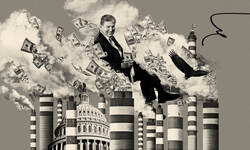 Borrowed from that great asset, https://www.theguardian.com/us-news Borrowed from that great asset, https://www.theguardian.com/us-news (NB: In the first version of this, I forgot to mention the heroes and victims of Trump's rampage -- the police officers who were left to fight it out, without adequate weapons or backup, by that murderous thug of a President. Some of them were present in the front row, mute and injured witnesses to the massive evidence being presented. There were also two guys who just happened to get caught up in the rampage, now professing sorrow, without a trace of remorse or wisdom. One couldn't even find a jacket and tie to appear before Congress. The other guy tried to apologize to Harry Dunn, the brother who had to swat vermin with his bare hands that day. Dunn is a wonderful person. To his credit, he gave the man a blank stare and let him go his way. The witness still has to answer to his wife, who was present on Tuesday. Good luck with that. My belated thanks to the officers who were set up to fail and be injured, by the President of the United States. GV)
I have become addicted to the Jan. 6 committee hearings – hanging on every response, every nuance, every face in the audience. I have not been this involved in any television spectacle since The Sopranos, all those years ago. In fact, I am deeply afraid this series will end the same way The Sopranos did – by going dark, with no final conclusion for the chief character. Tony Soprano and Donald Trump. Guy from Jersey, guy from Queens. When the Sopranos series ended so abruptly – with Tony, Carmela and A.J. eating onion rings while waiting for Meadow to park the car – I understood what author David Chase had done. He let all of us construct our own ending. Okay. Deep down, it was only a TV series, and in some strange way I saw Tony as a family man (as well as a bully and a murderer and gangster), so I concocted my alternate coda for the family – new identities and fingerprints, a swanky home in Boca Raton, the kids in college. Another chance. I could concoct another persona for Tony but I cannot imagine another life for Trump--or his admirers. As of now, I bet there might even be six or seven middle-of-the-road Republican voters around the country who have bothered to watch or read the hearings and have decided Trump is a vile criminal, after all. I have the terrible feeling that AG Merrick Garland will sleepwalk through the final Biden years, and Trump will talk his way out of everything, the way he did starting near the family bunker in Jamaica Estates. In the meantime, I watch these hearings the way I watched the Sopranos. Don’t call me. Don’t text me. I’m a total Fan Boy for Liz Cheney the way I once was for Edie Falco, and I hang on the patriotic history lessons from Rep. Jamie Raskin the way I did on the scowling gangland sagacity of Steven Van Zandt, Tony’s consigliere. This current series is the best education in civics I have ever seen on TV. Every member of the panel reminds those of us who are listening what democracy means, or should mean. I have tried not to rage at the revelations in each of these made-for-TV “hearings,” keeping my cool as people revealed the ways Trump garroted and knifed and shot democracy. I held back my rage on Tuesday watching a weasel lawyer named Cipollone try to suggest he had undergone a miracle cure – seen the light, praise the Lord – although it was clear the committee’s lawyers had suggested he might want to testify, or else. The weasel was 18 months late. However, there are still surprises, particularly last week from Cassidy Hutchinson, the 26-year-old aide to another weasel, Mark Meadows. (What is it with people like Mark Meadows, Lindsey Graham, Kevin McCarthy and the aforementioned Cipollone – they need a strong Fuhrer type to make them feel whole?) Anyway, Miss Hutchinson was still young enough, had not been around politics long enough to have her heart corrupted, and she had the visceral understanding that bad things were going on down the hallway and she shamed the weasel Meadows into at least acknowledging the dark intentions of Trump. Cassidy Hutchinson has taken on the aura of a latter-day Paul Revere, sloshing through the slimy bogs of Washington, shouting, “The weasels are coming! The weasels are coming!” Someday there may be a Cassidy Hutchinson stamp – put me in for a 100-pack. I did lose it on Tuesday, however. My position watching this horror show has come from the Iris DeMent song – “No Time to Cry.” “Working overtime to make sure that I don’t come unglued.” But then Rep. Stephanie Murphy from Florida, one of the panel members I knew least, gave her short summation of the day. She is, she revealed, from a family that escaped by boat from Vietnam. She praised the United States of America, and she linked the committee’s work with the ideals of truth and democracy….and to my amazement I started to weep, great big salty tears rolling down my face, and I turned to my wife (who does not hold back her rage at these thugs) and I found myself blubbering, “They don’t get any of this, do they?” I was referring to the enablers and hustlers and explainers and deniers and downright racists who supported, and continue to support, Donald J. Trump, who is worse than anybody in “The Sopranos.” The Sopranos merely murdered and stole. These people are worse. Unless the Justice Department steps up, I can foresee another show going dark. (This is the way an American hero acts.) Some people become heroes once. John McCain was a hero four different ways, by my count. He was a hero in wartime and he was a hero during the stench of Donald Trump and Mitch McConnell. That is why I am celebrating the news that he has posthumously been awarded the Presidential Medal of Freedom. The medal is going to deserving people like --Sandra Lindsay, a nurse who lives in the same town I do, who became the first American to be inoculated against Covid. --Simone Biles, the Olympic champion who excelled despite being assaulted in one form or another by a rogue doctor, the gymnastics federation, and the FBI -- Megan Rapinoe, who caught my eye with her brazen sorties as a star soccer player, and then caught the eye of the world with her support of female athletes and LGBTQ causes. ---And so many others. John McCain touches my heart in a special way because he was a perpetual hero, and also a very human public figure. I met him once in his office in 1999, when we talked so easily during a break in a Senate investigation of the Olympic movement. (He had just savaged an American Olympic official who sounded too vague to the senator.) I began with a question about something else: my wife had sat next to one of McCain’s service buddies on a long flight to Asia. The man told her how the senator was quietly leading some vets to raise money and goods and shipping them to, yes, Vietnam – the same country that had broken his arms during a long and cruel captivity. In his office in 1999, I asked McCain why he helped Vietnam. His answer was an eloquent shrug with his damaged shoulders -- a gesture of modesty. John McCain was also a hero during his doomed campaign in 2008 when Republican voters vilified Sen. Barack Obama as “an Arab.” John McCain snatched the microphone back with the response that his fellow senator was a good man, a family man. McCain asserted that he would make a better president, but he told his own people that they need not worry about the loyalties of his opponent. That is the instinctive act of an American political hero. Or used to be. The fourth time John McCain was a hero was in 2017 when it was apparent he was dying of cancer. With a post-operative scar on his head, John McCain strode, military-like, to the floor of the Senate, where his colleagues were voting whether to scuttle much of the health-care program known as Obamacare. At 1:39 AM, John McCain faced the twisted Mitch McConnell and jabbed his right thumb downward, in a decisive gesture straight from the Roman Colosseum. No repeal. Ongoing health care for millions. That, for me, is the act of a hero. The recipients of the Medal of Freedom are always varied. I became interested in the medal in 2011 when Stan Musial, whose biography I was writing, was among the honorees. Through a Washington insider friend, I received a special guest pass, (more access than a journalist) and mingled with the guests and the recipients, including a fading Stan the Man. I watched President Obama appear, so knowing and enthused about each of the recipients and their fields. I got to chat with Bill Russell, still fierce-looking, and tell Yo-Yo Ma how much I admired his diverse cello repertoire On the way in, a Washington lawyer pal of mine was showing me a photo of himself with a very young President n 1961, and a handsome lady spotted the photo and said, “That’s my brother” – meaning President Kennedy. She was Jean Kennedy Smith, another recipient that day. After the ceremony, Yo-Yo Ma sat in with a Marine string quartet in the lobby, and his pal President Obama stood near him, and on the way out, “back to work.” the President extended his hand to people nearby, and one of them was me -- an act of grace I will never forget. So, yes, I count the Presidential Medal of Freedom as one of those great American honors. Now the medal is going to other deserving recipients. There is no A List and B List. But I will say, in my heart, the recipient who thrills me the most this time around is John McCain, four-time hero. It all came back to me – my telephone interview with the popinjay proprietor of a doomed gambling den.
Watching the Jan. 6 hearings on Monday, I heard former toadies Bill Barr and Bill Stepien talk about the emptiness of Donald J. Trump, who lost the 2020 election and then went blank when aides tried to tell him it was over. Could not take in information or considered opinion, even when it was meant to help him in his chosen field, that is to say, the presidency. Then I remembered -- the good old days of 1999, when Trump was not trying to wreck the United States of America but instead was merely bringing down the Trump Taj Mahal in Atlantic City. In addition to siphoning money from people with a gambling jones, the Taj also ran boxing cards, for people who like to see others bleed. Always hustling his faux-golden appearance, Trump was up front when a boxer named Stephan Johnson was beaten unconscious and lugged off to the hospital where he died within hours. As an abolitionist toward boxing (tempered by liking so many boxers I met), I wondered if the death of Stephan Johnson might touch some primitive form of Trumpian conscience. So I made a call to Trump's gatekeeper, asking for an interview. They knew me. I had grown up not far from the Trump Tara, knew his older brother Fred (a nice guy), and had also met Ivana Trump through a New York Czech connection. Plus, I had seen Ivana – twice as smart as her husband – try to coach the man through press sessions regarding the New York Generals football team he owned. I could see he did not have a grip on details. Now I was wondering how he could explain his part in boxing, in the death of Stephan Johnson. Over the phone, he was dim-wittedly vague, coming up with cliché after cliché about boxing: ''I love boxing, but it's a dangerous sport.” ''I hate what happened. 'It's something you have to get through. I think boxing is an alternative.' In some cases, the boxing ring is better than anything else.'' ''You have to understand that we do not sanction the fights,'' Trump said. ''That is done by the New Jersey State Athletic Control Commission. All we are is the venue -- and fighting is popular. Every fight sells out. We have other things like gymnastics; they don't sell out. All I know is, boxing sells out.'' I’ve talked to other boxing people who made more complex arguments for boxing. But Trump was inarticulate. Flat. Empty. Didn’t know. Didn’t care. The world has since seen what is really inside -- the raging egocentric sending the deluded and the deranged out to do battle at the Capitol, telling them he would be along shortly. Now we are getting sworn testimony from people who served him, like Barr, who back-stabbed his old law and church pal Robert Mueller. Even Bill Barr had enough of Trump. Solid Republican campaigners and lawyers and advisors describe him as not able to follow their advice that it was over. Sounds like the guy on my phone in 1999 -- the good old days, when he merely wrecked his businesses, and his family. How far would Trump go? His inability to know truth has even scared off Ivanka Trump, the oldest child, the one he sent off to mingle with European leaders, much to their disdain. This committee showed taped testimony from Ivanka, whose furtive eyes darted from side to side, looking for the nearest escape hole. *** In this spectacle of a nation in trouble, I found two positive scenes: --The former head of the Fox election evaluation grew, Chris Stirewald, was asked how his group on election night, 2020, had analyzed the incoming returns in the pivotal state of Arizona. With visible pride, Stirewald told about the experts from both parties, who reached the judgment that absentee ballots, counted later, would swing the state to Joe Biden. Fox beat the opposition – that is a big thing in journalism -- and they were correct. As a journalist, I felt great pride in what this guy and his staff had done. For his proven expertise, the network of Tucker Carlson fired him. *** --One of the panel members, Rep. Zoe Lofgren of California, noted that Bill Stepien had been scheduled to give live testimony Monday, but had rushed home when his wife went into labor. (With little notice, the committee staff pulled out vital segments of his previously taped testimony.) I was touched when Rep. Lofgren noted that Stepien had every right to go home to be with his wife. Let me just add that if the other party were running a hearing, and that happened, I would not expect such a note of grace *** (My interview with the inarticulate Donald Trump, when he was merely a New York joke, in 1999.) https://www.nytimes.com/1999/12/12/sports/sports-of-the-times-a-front-row-witness-to-death.html Just in time for Mother’s Day and Father’s Day comes the ickiest New York Times series I have ever seen -- not that the Times’ coverage by the great reporter Nicholas Confessore and colleagues is icky but because the subject matter is so icky.
The Times ran a tree-part series about Tucker Carlson, the angry widdle man who apparently is bigger than O’Reilly, bigger than Limbaugh, bigger than Hannity. And in the very same Sunday issue was a Review article about J.D. Vance, the Yale-Law-School money-man who became famous for criticizing Appalachian people without pointing out the corporate and political causes (I’m talkin’ about you, Commodore Manchin.) Vance is now, goodness gracious, running for the Senate from Ohio. And in the Monday Times is a column by Michelle Cotttle pointing out that the hottest campaigner in Ohio – better teeth, slimmer figure, more elephant-part trophies – is Donald Trump, Jr., not the doughy, grumpy-looking J.D. Vance. Yuk. What do these three worthies have in common? The answer came to me: dysfunction, broken sons lashing out at the world without a tangible speck of compassion or solution. The political party that once boasted of family values is now being represented by angry boys left adrift by parents. According to the Times’s reporting, Carlson was abandoned by his mother, whose dissolute ways led her to Europe, leaving him to claim at an early age that this had nothing to do with him. The evidence is that young Tucker drank and groused his way through his teens and into his 20s, and when he found a persona it was a critic of the left. According to the Times, Vance’ mother had the same weakness now raging through the strip--mined, job-bereft, opioid-glutted region whose sons and daughters have migrated northward into Ohio. (I spent many years writing from Appalachia and its extensions, and wrote two books about the region, and feel great bonds with the many good parts as well as the bad.) The Times reports that Vance’s mother has been clean for seven years. God bless her. When does he go to work on his own bravado and anger? If he is running for the Senate, when does he grow a bit of compassion? The third member of the testy trio is young Trump, who apparently gets more attention than Vance out on the trail. He apparently stumbled around during college, and had several blocks of time in his youth when he did not speak to his father, who was giving the world a critique of his latest hottie, and making a habit of putting his hands on women. As it happened, I had a few glimpses of the Trump ménage before the frightening White House years. (We grew up half a mile and seven years apart; his late brother Freddie was a nice guy. We have since sampled Donald Trump’s emulation of his crooked-dandy father, his disdain for his homebody mother.) When I came back to Sports in the early 80s, Trump owned a low-rent football team in New Jersey called the Generals. He knew nothing about his team – the coach, the players, the rules – which he would prove at occasional press opportunities in his gilded hotel lobbies. His alarming inability to focus on details was pointed out by his blonde wife Ivana sitting next to him, and interjecting, in her lush Czech accent “No, Donald, Walt Michaels is the coach, not the general manager.” Ivana would patronizingly correct Trump about this and that, and at some point they were divorced. Whatever the three children really felt, if anything, they eventually knew which side to take, which has led them to today. So now one child of dysfunction campaigns for another child of dysfunction while a third child of dysfunction yammers at immigrants and minorities and liberals. What a trinity, so filled with pain and anger, passed on by an earlier generation. As Mother’s Day and Father’s Day approach, it is time to give thanks for parents who stuck it out, who were a presence, who tried, who disciplined when they could, who gave, who loved, in their ways. (Mom and Pop, I never thanked you enough. You were always on our sides.) It is human to feel compassion for these three broken men, whose pain is on such public display. May they process their rage, may they learn to do less damage. May they heal. But more important, may this country heal, somehow. North Americans have come a long way with Brazil and music. When I was a kid, we had the movie,“The Road to Rio” with Crosby and Hope -- don’t bother – but in the early 1960s I first heard “Song of the Jet,” (Samba do Avião) a Tom Jobim song, sung by Tony Bennett, about a jet landing in Rio. Now we were getting somewhere. In the same magnificent decade for music, we heard a version of “The Girl From Ipanema,” music by Antônio Carlos Jobim, in a collaboration by Stan Getz and Astrud Gilberto, and In the same decade, we got the bossa nova – Brazil ’66 – Sergio Mendes. About the same time, a skinny kid from Bahia captivated listeners and ticked off the authorities and lived to smirk about it. I’ve been listening to Veloso for over a decade, partially because of my friends Altenir and Celia, but also for the music that flows so copiously, a veritable Amazon of Veloso -- love songs, political songs, tributes to indigenous people, their cultures disrupted by invaders from Europe. On one of his CDs, there is a song called “Manhata,” in his reedy but purposeful voice, about “uma canoa,” as he describes a Lenape maiden piloting her canoe on one of the streams criss-crossing a certain island in North America. (The streams still exist in the basements of high-rise Manhattan. Surprise!) About three minutes in, the peaceful gliding turns into a cacophonous stroll through modern “Manhata” – Blare of horns! Rattle of drums! That would make sense, since Veloso has often performed in the city and seems to find a higher level of ego and motivation in Bigtown. In 2008, Veloso was the subject of a DVD, “Coração Vagabundo" (Wandering Heart) during his tour of Sao Paulo, Japan and Manhata – preening when pretty girls smiled on the street and cabbies honked their horns in recognition. His kind of town. (Blitzer informs us that Veloso keeps a flat in the East Village.) As a writer and a fan, I am envious of the access Blitzer had with Veloso in Rio, and also with musicians I admire like David Byrne and Jacques Morelenbaum. Also, Blitzer’s article quivers with the presence of Tom Jobim, Joao Gilberto, Gal Costa, Gilberto Gil. The article also takes us from the dictatorship that spared Veloso in the ‘60s to the current regime of Jair Bolsonaro, who considers it a good day when bulldozers take down dozens of acres of the rain forest. But enough from me. Jonathan Blitzer writes the story so well. Perhaps you subscribe to the New Yorker, as I do, or perhaps you can call up a freebie from the website. Here is the link, and good luck: https://www.newyorker.com/magazine/2022/02/14/how-caetano-veloso-revolutionized-brazils-sound-and-spirit Did I mention that Veloso also sings Cole Porter....and Michael Jackson (above) with a touch of Lennon/McCartney at the end ?
Also, for a great swath of contemporary Brazilian music, my friend Andrea Dunn plays two hours every Monday, from 1-3 PM, Eastern Time, on KDHX (88.1 FM) St. Louis https://kdhx.org/ Slightly less than two years ago, my wife and I were at one of our favorite restaurants near our home, and she was talking about a virus, emerging overseas.
She was sensitive to infections, having had a dangerous bout with something she picked up years earlier, probably in South Asia. This is bad, she said. We’re not going out for a while. Safely ensconced in our TV room a year ago, we watched another virulent invader swarm all over the capitol of the United States. We were stunned to watch thousands of apparitions materialize with weapons and costumes and banners that proclaimed a war – dare I say a Crusade – against the established order of voting and succession. Democracy. It was not hard to figure out these creatures meant harm, as they hurled objects at police and smashed doors and windows, and twisted peacekeepers’ faces at close order. We saw familiar lawmakers huddle below their seats, and scurry to possible sanctuaries below. We saw the Vice President being rushed downstairs, to avoid a crowd lusting to hang him, or so they proclaimed. And those of us in front of televisions saw ghouls and zombies like Mark Meadows and Donald Trump, Jr., yucking it up at a rally closer to the White House, and we saw President Bone Spur urge his personal Brown Shirts to take the Capital, to “fight like hell.” He said he'd be right with them, just another lie. That memory does not go away. My wife is struck by the good teeth of the invaders – paid by corporate America or government (even the military) to prepare these louts for closeups. The costumes and banners and even the shaggy hair styles suggest they are starring in the video of their own life, offspring of the social-media age. Look, I’m a star. They’ve made it onto TV, like the fool with the suit and the office who posed as a business savant for the reality show. Today, we are still hiding out from the variants at home, watching what is left of the government we knew poke around in the copious evidence of evil. There is tangible proof that people with access to Trump were beseeching him to call off the beasts, but he would not listen. Whose fault is that? (Somebody we know has pored over the list of businesses that accepted stimulants, well into six figures, and, look here, two are people we know, with theoretically good educations, who are staunch Trumpites – “he’s good for business” -- but not too proud to take a Biden handout for the needy.) The investigation has uncovered plenty of evidence that shows which Fuhrer the shaggy Brown Shirts were obeying last Jan. 6. Now, the pace and tenor of the government “investigation” reminds me, alas, of vile attorney general William Barr eviscerating poor old Robert Mueller. The Republicans are killing time with smirks on their faces, empowered by a frightening swath of the country that knows exactly what is going on. We will watch these sad shenanigans while we are cowering at home, hiding from the latest variation. We know of sons who refused vaccination and endangered their loved ones. We know people who journeyed forth into crowds and proclaimed themselves “safe.” We know people who were extremely careful but somehow tested positive anyway. We have survived. My wife’s alert has kept us safe, thank God. Our heads are busy, we read and we listen to music and watch good stuff (mostly on PBS) and my wife makes great meals, and we keep in touch with many, many loved ones. We are blessed with security as we try to ride out the double pandemic. Now we will watch the one-year anniversary of that evil day, when the thugs and the monsters got a pat on the back from their hero, and lumbered forward, to try to take down a democracy, a crusade still very much in process. You could do worse. Instead of watching buffoons and insurrectionists on the tube, hook into the Web for vintage episodes of “Sesame Street.” We’re in for the long haul, anyway. Get prepared. I was reminded of “Sesame Street” recently when Sen. Ted Cruz, that vicious sack of goo, declared “Sesame Street” a public enemy for talking up vaccinations against Covid. Imagine trying to indoctrinate the kiddies (and their adult caretakers) about needles carrying life-protecting medication. I hadn’t thought of “Sesame Street” in a while, what with our grown grandchildren no longer needing our care. But the Cruz diatribe against Big Bird revived our love of early “Sesame Street,” when our children were young. Classic episodes came flooding back -- as real in my mind as scenes from “M*A*S*H” or “All in the Family” or "The Carol Burnett Show." One daughter – known as “Zingara” (Gypsy) to our Italian-American baby-sitter – would come back from kindergarten at mid-day (my wife was at work, teaching) and I would fix a plate of cheese and salami and we would watch “Sesame Street” together. I will never forget the spoof of a game show, in which floppy-haired host Guy Smiley offered a choice of prizes to the winners, Ralph and Trudy Monster – either a paid trip to Hawaii, with a new house, a new car, and ten thousand dollars in cash, or the second prize, a cookie. That sent Ralph Monster into an early-radio Jack Benny-esque cheapskate holdup dilemma. (“Your money – or your life?” “I’m thinking! I’m thinking!”) In the version I remember, Trudy Monster stood by her man. “I know you like cookies,” she said. What a wife. So he joyfully chose the cookie I will bet that episode was as graphic a view into the capricious heart of humankind as anything from Shakespeare or Toni Morrison. Wasn't that a time: Vintage “Sesame Street,” when Jim Henson and his furry friends were inventing a genre and public television. What riffs. At some point in the early days, there appeared a Rubenesque blonde who appeared to be another jovial member of the gang but in her actions and her statements she soon revealed herself as always, always, out for Number One. Miss Piggy. Another classic I remember involves one member of the cast blowing into a banana and producing a jazz trumpet sound. At that point, Gordon, the Black male presence on those early shows, turned toward the camera and, sotto voce, proclaimed, “a regular Miles Davis.” Something for the older folks. As the decades went by, “Sesame Street” produced an electronic trove of masterpieces, many of them on Youtube. Look at the one I found, with young Wynton Marsalis having a trumpet duel with a pure-soul feathery artist named Hoots the Owl. Playing for an audience of adorable kiddies, Marsalis is having a great time emitting his versatility. However, Hoots the Owl has one trick that even Wynton Marsalis cannot emulate. Dude can fly. Classic public television. I’m sure Ted Cruz, dead-soul schlub, hates it. 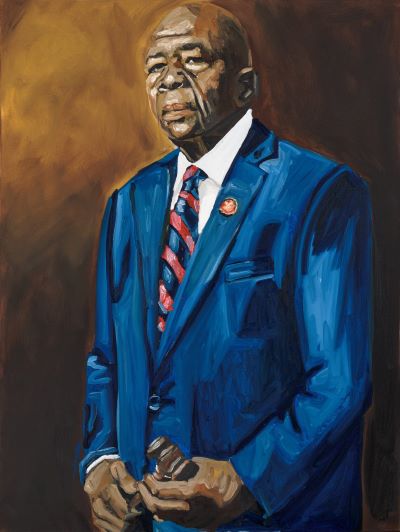 Rep. Elijah E. Cummings, 1951-2019 Rep. Elijah E. Cummings, 1951-2019 I started calling him “The Prophet” in 2008 during a tense Congressional hearing about the drug epidemic in Major League Baseball. With Biblical emphasis, Rep. Elijah E. Cummings scolded the stewards of baseball for tolerating the widespread usage of performance-enhancing drugs during the home-run frolics in the recent generation. His powerful figure and righteous stance was befitting the prophet who is honored by Jews, Christians and Muslims. “This scandal happened under your watch,” Representative Elijah E. Cummings, Democrat of Maryland, said in “Field of Dreams” gravity to Commissioner Bud Selig and Donald Fehr of the players union during the Congressional hearing last Tuesday. “I want that to sink in. It did.” That’s what I wrote back then, and I followed him from afar as he dominated Congressional hearings during the disgraceful time of Donald J. Trump, trying to motivate see-no-evil Republican representatives with a Biblical exhortation: “We’re better than this.” Amen. I was horrified to see how weary he appeared during those hearings early in 2019, and I was not surprised when he passed months later. He gave it all he had. Now Elijah Cummings is returning to Congress, in the form of a portrait by a young Black artist from Baltimore, Jerrell Gibbs. The story of the artist and the work is in the Sunday New York Times and, I am sure, elsewhere. But are “we” better than this? And who is “we?” I ask this as Elijah Cummings’ nation seems to be degrading itself, day by day. Just a few examples: --- A thick swath of adults are refusing to take Covid vaccinations that would protect themselves and their loved ones and other human beings – virus droplets as lethal as, well, bullets. -- Politicians in many states are conniving to make it more difficult for American citizens to vote. -- And people are scooping up all forms of rapid-fire guns to prepare for, well, for what? “I saw guns and sharp swords in the hands of young children” – “A Hard Rain’s A-Gonna Fall,” Bob Dylan, 1963. (Talk about prophecy.) Let us swerve to 2021 – in the wake of the Rittenhouse decision in Wisconsin -- when parents in Michigan bought a very lethal pistol for their 15-year-old son. The boy (“in the hands of young children”) gives off appeals for help, and is ignored by his parents. His obsession with the weapon is noticed by school officials who, at the very least, notify the mother, whose reaction is to send her son a snarky (sign-of-the-times) text message: “LOL I’m not mad at you,” Jennifer Crumbley texted her son. “You have to learn not to get caught.” The next day, her son killed four classmates and wounded many others in the high school. Then she and her husband went on the lam and were flushed out in downtown Detroit. Now it appears that Mrs. Crumbley wrote a letter to none other than President-elect Trump in 2016, praising his stance on freedom to carry a gun.  “As a female and a Realtor, thank you for allowing my right to bear arms,” she wrote, according to The Daily Beast. “Allowing me to be protected if I show a home to someone with bad intentions. Thank you for respecting that Amendment.” She complained about parents at other schools where the “kids come from illegal immigrant parents” and “don’t care about learning.” In her own way, Jennifer Crumbley was prophetic. When I read her screed, I began to think of others - young guns, so to speak -- who scorn the country they allegedly serve. The sneer on the young man’s face reminds me of members of Congress named Gaetz, Hawley, Cawthorn, and the unleashed aggression in the mother’s “LOL” text reminds me of sneering warrior-representatives Greene and Boebert. Are “we” better than this? Soon the august presence of Rep. Elijah Cummings will take its place in the Halls of Congress. I hope his ideals will grace those who walk past. (Laura Vecsey is a terrific news reporter; she proved it in two capitals of major states. She once almost bought a bit of land in a scenic portion of northern West Virginia that George Washington had surveyed. The other day Laura offered some friendly advice to her father, who was thinking about writing about the baseball post-season: “You know West Virginia; write about that.” So here goes.)
Joe Manchin was not in the spotlight when I was covering Appalachia in the early 70s. The governor of West Virginia back then was Arch A. Moore, who later did 32 months for campaign corruption. Manchin later became governor and is now a senator. Nominally a Democrat, he is doing his best to blow up bills that would protect the ecology and the people. He says his stance has nothing to do with the energy stock he divested. “It’s in a blind trust,” he often says. The governor now is Jim Justice, allegedly the richest man in the state. Some governors might be concerned about the water supply or the bleak future of the coal industry, but Jim Justice spends much of his psychic energy coaching the girls’ basketball team in East Greenbrier, W.Va., far from the capital of Charleston. He also wants to coach the boys’ team in East Greenbrier, but school officials are thwarting that little whim of his. Stay tuned. * * * West Virginia is not all grim coal camps and refuse from hilltop strip mining; the coal seams run out below the northernmost sector. One of my best friends recently spent a long weekend with three of her long-time girl friends in a remote cabin in the woods – had a great time, even though the fall colors had not yet arrived. She talks with great affection of her first couple of years in a West Virginia college. * * * The reason I love old-timey country music is from a few summers as a kid, spent in upstate New York, where you could tune in Kitty Wells, Hank Williams, the Carter family – clear as a bell, through the mountains, straight from WWVA in Wheeling. * * * One of my first trips to coal country was to report on Dr. Donald L. Rasmussen, who carried around slides of dead miners’ lungs – ravaged from years of work underground, inhaling coal dust. Some coal-company doctors used to tell miners that coal dust would cure the common cold, but. Dr Rasmussen displayed the grisly slides at public hearings or outside the headquarters of coal companies. * * * I also got to meet a member of the House of Representatives who cared – Ken Hechler, a World War Two vet, a New Yorker, and a writer, who settled in West Virginia and became an advocate of the miners, the poor, and ran for office – living to be 102. Hechler had a protégé, Arnold Ray Miller, a working miner who had absorbed the inequities of the business. In 1972, Miller – backed up by volunteers, those dreaded out-of-state college students, ran for president of the corrupt United Mine Workers. I traveled around with Miller’s cadre during the campaign; after the 1970 murder of the Yablonski family in western Pennsylvania, the campaign was under close protection – insurgent watchmen outside hotel rooms, everybody armed. Miller won the election in 1972, but nothing much improved. * * * In March of 1972, I rushed from Kentucky to West Virginia to cover the flooding of a valley, when a coal-mine refuse pond gave way in heavy rain, killing 125 people alongside Buffalo Creek, early on a Saturday morning. I interviewed next-of-kin and neighbors and learned that the company had sent a worker named Steve to bulldoze more earth onto the failing dam, high in the hills. That is to say, the company knew the danger but did not bother to warn the families downstream. My reporting helped inform a successful class-action suit, that did not bring back the dead. * * * The coal-mine carnage and the current conflict of interest by public servants would have been no surprise to one of the greatest figures in West Virginia history-- Mother Jones. Born in Cork, Ireland (home of strong women, I believe) Mary Jones left the potato famine for Toronto, lost her husband and four children, and became an advocate of organized labor in the U.S. – particularly West Virginia. (She often praised the valor of Black laborers.) To know more about her: https://history.hanover.edu/courses/excerpts/336jones.html https://www.biography.com/activist/mother-jones The people of West Virginia deserve better. In 2016, they voted, 68 to 26 per cent for Donald Trump, who soon abolished as many pro-ecology bills as he could. Many miners understand theirs is a dying industry. But guess who bellied up to Trump in the swarm after one of Trump’s first speeches? None other than Blind-Trust Manchin. Where is Mother Jones when West Virginia needs her? One of my favorite scenes in all the Sopranos episodes -- plus, nobody dies. 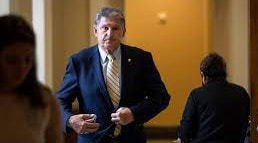 There is a terrific article about the enduring appeal of the Sopranos’ series, in this Sunday’s magazine section of The New York Times, already online. The writer Willy Staley, an editor of the NYT magazine, claims the series is extremely popular with younger people who were too young to watch it during its heyday. Why? The Sopranos are trying to hold on to their thuggish edge in an apocalyptic world where all the rules are gone, even for gangsters. Until I read this article, I had never seen the broader picture – I had laughed at the funny lines even when my stomach was churning, knowing what was going to happen to characters like Big Pussy or Adriana, in over her head. Who knew this was actually about America? But then the magazine article popped up online, describing Tony’s world of expensive suburbs, with everybody emulating gangster architecture, until the palaces met in the middle. No taste, no privacy, even for a gang lord. Then on the very day of the magazine article, I was watching the televised Congressional budget death dance, and there was Sen. Joe Manchin of West Virginia, ostensibly a Democrat, jutting out his jaw in a narrow corridor, being pestered by a reporter. The pesty reporter, Ari Natter of Bloomberg News, asked Manchin if his view on protecting the dying coal industry was colored by the fact that his son ran a coal company and Manchin received profits from it. “I’ve been in a blind trust for 20 years,” Manchin said, hard-faced. “I have no idea what they’re doing.” “You’re still getting dividends,” the reporter persisted. “You got a problem?” Manchin asked. When the reporter asked another question, Manchin snapped: "You'd do best to change the subject." (Published reports say Manchin has made $500,000 in coal dividends. The family is busy. Daughter Heather Bresch once presided over a drug company, Mylan, when the price of EpiPens soared to $600 a shot. And Gayle Conelly Manchin, wife of the senator, is now the federal co-chair of the Appalachian Regional Commission, no doubt taking care of the poor folks in the hollers. That's the way it works in Appalachia.) Seeing Joe Manchin in action, I thought immediately of how Tony Soprano’s face would darken as he menaced somebody. I thought of how Furio, Tony’s muscle man, nudged the uncooperative doctor into the golf-course water hole, up to his ankles. * * * I know there is a prequel about the Sopranos coming out, but I think I’ll skip it. For me, that world, that series, ended – quite appropriately – with no resolution about what happened to Tony and his family. I usually postulate that the evening in the restaurant ended prosaically, and Tony and Carmela found a way to get out of the business, changed their fingerprints and moved to Boca Raton. (I bet Tony even plays golf.) Maybe, in their new lives, Tony and Carmela watch TV as Joe Manchin struts down a Congressional corridor, pretty much saying he doesn’t care what happens to all those people. He’s got his. Tony: “That used to be me.” * * * Read the great NYT magazine article for yourself: https://www.nytimes.com/2021/09/29/magazine/sopranos.html During Angela Merkel’s final weeks as German chancellor, a stirring fact came out in The New York Times: immigrants have been naming their daughters Angela, and sometimes their sons also received a male version of her name. I have been delighted to learn this about Chancellor Merkel because she has been a familiar figure in my consciousness since the 2006 World Cup, as my wife and I had a glorious time taking trains to games in bustling cities all over the modern nation. The chancellor showed up for her country’s games, her bright jackets making her findable among the staid politicians in the VIP tribunes of the stadiums. Her soft, thoughtful face was always findable, right above the lime and yellow and red jackets, comfortable with herself. As she endured in office, I came to think of her as one of the most stable forces in a world getting meaner by the hour. Chancellor Angela Merkel is being appraised by experts who know her best: slow to act on climate change and aggression in Europe, plus Jeopardizing her country by encouraging immigration. But I always thought of her as the pastor’s daughter, growing up in an East Germany crawling – and I use the word advisedly – with cold-eyed officers from the old Soviet Union, like Vladimir Putin, whom she would meet again, later. The tolerance for immigrants reflects Merkel’s open attitude toward the poor, the desperate of the world. Some countries turned immigrants away – even viciously separated parents and children, as if to punish them for their dire straits. But there were fewer barricades for millions who came to Germany, and began, as immigrants do, to work, to make life better for their families, to fit in. Perhaps she had heard her Lutheran pastor father, Rev. Horst Kasner, referring to the Biblical passage (Matthew 19:14): "Jesus said, 'Let the little children come to me, and do not hinder them, for the kingdom of heaven belongs to such as these.'" (The word "suffer" means to allow something or tolerate an action, in earlier forms of English.) Without preaching, she lived the words. (The other great religions surely stress compassion for the poor.) A recent article in the Washington Post traced the stance of the Chancellor to her father: “Germany and even its churches are dominated by economic thinking,” Pastor Kasner said in 1991. “But the Bible’s message calls on us to judge political and economic systems from the perspective of their victims.” Perhaps in retirement, Mrs. Merkel will elaborate on the sources of her views. For now, she is the kind face of world politics. I also think of the published photos of her with some of the male “leaders” she met. In tribute to Angela Merkel, I have borrowed a few from the world’s archives. I never had to use a word of German, not one, in a month of trains, hotels, stadiums and restaurants during the World Cup of 2006, so, may I say: Danke, Kanzlerin Merkel Here's my NYT column from a stay in Essen during the 2006 World Cup, when I tried to trace the last steps of my Belgian-Irish aunt in 1944; and realized how carefully Germany acknowledges those days:
.htmlwww.nytimes.com/2006/06/09/sports/soccer/09vecsey.html Hoping you can open these fine strories: https://www.nytimes.com/2021/09/19/world/europe/merkel-election-immigration-children.html https://www.washingtonpost.com/world/europe/the-pastors-daughter-how-a-striking-family-history-shaped-germanys-powerful-chancellor/2017/09/08/66b81140-88e1-11e7-96a7-d178cf3524eb_story.html A current appraisal of the Merkel regime: https://www.nytimes.com/2021/09/24/opinion/angela-merkel-germany-election.html I have heard agitation to drop the name of Mario Cuomo from the bridge spanning the Hudson River – the one most New Yorkers stubbornly call The Tappan Zee Bridge. Just because the son is resigning as governor – and not a moment too soon – does not mean the father should be obliterated from the elegant new bridge that was officially named for Mario Cuomo, who served three full terms as governor, which is more than the grabby son will ever serve. Besides, we New Yorkers don’t follow every order we hear. For example, we jaywalk. Most New Yorkers never stopped calling it the “Tappan Zee” – “Tappan,” in homage to the Lenape tribe that lived there peacefully for many centuries before whites invaded, and “Zee,” the Dutch word for “sea,” connotating the wide point in the river. It was “Tappan Zee Bridge” while we braced for rear-end collisions on the Sunday night southbound backup and it was “Tappan Zee Bridge” when we hit axel-threatening holes in the archaic pavement. And that name still resonates with New Yorkers, after the son had the power to bring about the naming of the new bridge for his father, a good human being. Plus, we can save millions of dollars by not changing all those signs for the new span that opened during the tempestuous reign of Cuomo II. New Yorkers do not change our minds or speech patterns easily, particularly regarding our bridges and tunnels and thoroughfares. Just a few examples: As much as we (I) admire the late Robert F. Kennedy, the spans connecting Queens, Manhattan and the Bronx are still known as the Triboro Bridge. Same thing with the low span between Manhattan and Queens, technically named for the late mayor, Ed Koch. I can still hear Koch’s petulant question: “How’m I doing?” but as a fellow Queens kid I can hear Simon and Garfunkel singing, “Slow down, you move too fast/ You got to make the morning last,” in “The 59th Street Bridge Song (Feeling Groovy.)” I can still smell the Silvercup Bread being baked in the evening in Long Island City as we drove home from “The City” – that is, Manhattan. The Brooklyn-Battery Tunnel is technically named after former governor Hugh Carey, but, you know… When my father took me around the city, teaching me to love it, he told me no New Yorker ever calls Sixth Ave. by that grandiose name, “Avenue of the Americas.” As an aside, I have never typed or spoken the name of the bank connected with the Mets’ current ballpark, which I call “New Shea” or “The Mets ballpark.” I hate naming rights. (Bless the NYT copyeditors who went along with my little affectation.) Then there is this: A few minutes off Interstate 84, in Vernon, Conn., is Rein’s New York Style Deli. (Our friend Cookie, who lives nearby, introduced us to it and we sat right below a New York subway sign.) One of the deli’s featured sandwiches includes roast beef, turkey and pastrami on three slices of rye bread, and is named for the Tappan Zee Bridge. “We must have ridden the Tappan Zee a million times,” owner Greg Rein has said. To prove my point: I love the heritage of Jackie Robinson, our blazing pioneer with the Brooklyn Dodgers. But that dangerous narrow parkway – now officially re-named for No. 42 -- that wriggles on the glacial spine of Queens to the Brooklyn border will always be The Interboro – or, as we New Yorkers pronounce it, “Duh Intaboro.” Finally, a little personal Queens history. The Cuomo family moved into a bucolic neighborhood right behind my family house on a busy street, after I had grown up and moved out. The Cuomos voted at the same polling station as my parents – “Nice people,” said my parents. (Word from others was that the three Cuomo girls were terrific, young Chris was a sweetie, and Andrew was…well…difficult.) In time, I got to chat with Gov. Mario Cuomo about his loyalty to his Coach for Life, a leprechaun named Joe Austin who coached youth baseball and basketball teams for the St. Monica’s parish in South Jamaica. For his inaugurations as governor, Mario made sure Joe Austin was front and center, and addressed him as “Coach.” (I wrote about Mario, combative Queens jock, when he passed in 2015.) One time, a mutual friend brought Matilda Cuomo to our house while they were out for a ride, and they stayed a few hours for lunch. My wife and I have lasting memories of Mrs. Cuomo: she is a lady. Leave Mario Cuomo’s name on the bridge. The Tappan Zee Bridge. * * * I should add: In the past five years, an assortment of rickety, glittery, pretentious, over-priced buildings have had a certain odious name scraped or painted or sandblasted from the façades, after outcries by the residents. We New Yorkers do have our standards. ### Watching over the East River like a benevolent gargoyle. I'm betting that even Mayor Koch would call it the 59th Street Bridge or The Queensboro Bridge. (Version by the Harpers Bizarre.)
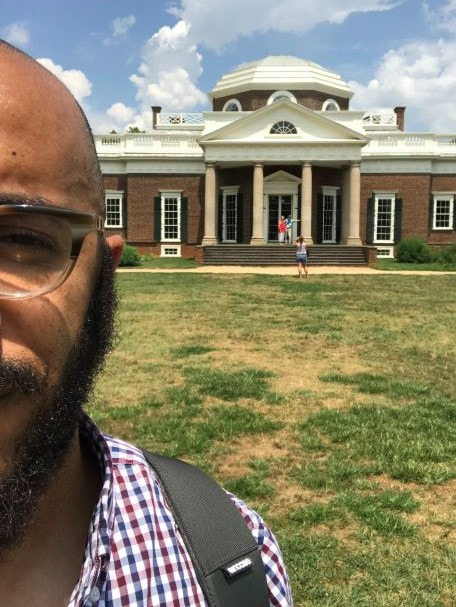 Clint Smith at Monticello Clint Smith at Monticello I just read a great new book: “How the Word Is Passed: A Reckoning with the History of Slavery Across America,” by Clint Smith. Smith’s main point is that people, northerners and southerners, are now learning things about slavery they were not told in school -- the depths of depravity by which a female slave could be labelled a “good breeder” by her owners, and other aspects of good old-fashioned American enterprise. Many people in this country still see slavery through a sentimental haze: slaves were better off here than they would have been in Africa; they were handled benevolently at the plantations. You know, good people on all sides. Nowadays mayors and school boards and governors are trying to forbid controversial or academic critiques of America. (Some of these moronic governors are aiding Covid by not mandating vaccinations and masks at work and school.) Smith’s book about slavery lies is a companion to the so-called “Big Lie” about alleged election fraud and the merry tourists who flocked to the Capitol last Jan. 6. For all the chicanery and cowardice in high places, the worst parts of slavery are impossible to hide as Smith makes his rounds. As a one-time news reporter, I respect his shoe-leather approach -- visiting hot spots of the slave trade. A staff writer for the Atlantic – and a poet – Smith interviewed tour guides and museum directors as well as tourists, plus participants in Confederate commemorations. The new cadre of historians and guides make it clear that that people, white people, mostly male, not only performed violent deeds but also knew what was being done, mostly in rural and southern states. Smith begins where, in a sense, the country began – Thomas Jefferson’s plantation, where he "owned" slaves while preparing to write the Declaration of Independence. While he put pen to paper, his white staff put whips to the backs of Black slaves. Background music for Jefferson. At Monticello, Smith chats with two visitors -- white, Fox-watching, Republican-leaning women, who hear a guide talk about Jefferson’s long association with a female slave. Speaking to Smith, who is Black, the two women seem aghast. Smith quotes one of them: “’Here he uses all of these people and then he marries a lady and then they have children,’ she said, letting out a heavy sigh. (A reference to Sally Hemings, an enslaved woman, who bore at least six of Jefferson’s children. The two were never married.) ‘Jefferson is not the man I thought he was.’” That is the theme of the book – many Americans in position of responsibility and knowledge deliberately deflected what was known about slavery. And not just in the South. I know somebody who did college research on commerce in New England, and never came across the mention of slaves in Yankee states. Then again, in a 2020 farewell to the great John Thompson, I praised a recent book about Frederick Douglass and noted that in all my school years in New York (with many history electives in college), I never heard the name "Frederick Douglass." (To be clear, I did know his name, just not from school. Our parents were part of a Black/white discussion group, and they extolled heroes like Marian Anderson and Paul Robeson, and all of the children have learned from our parents.) Smith points out that the Dutch and English, who pushed out the Lenape natives, welcomed slaves on the oyster-laden shores of lower Manhattan, and used them for labor, and shipped thousands to farms and other towns. New York was the second largest entry port, distributing slaves culled from Africa. Those who died were tossed, unmarked, into a pit near Wall Street. One chapter in this book about slavery jarred me because I did not see it coming – a visit to the dreaded Angola Prison in Louisiana. Smith explains his visit to Angola by pointing out that Black prisoners worked for free or for pennies, at the penal equivalent of plantations. In fact, Angola had a big house, where the warden and his family were served by trusted Black prisoners. Prisons as plantations: As it happens, I have heard the metallic clank of the heavy door slammed behind me in three different prisons – and all three stories involved Black men. (See the links below.) Smith’s itinerary includes: Monticello Plantation, Va.; the Whitney Plantation, La.; Angola Prison, La.. Blandford Cemetery, Va., Galveston Island, Tex, where emancipation was belatedly revealed to Blacks, leading to the recent proclamation of a new national holiday -- Juneteenth; New York City; and Gorée Island, Senegal, the legendary focus for the African slave trade. In a moving Epilogue, Smith interviews his own elders for stories of prejudice, slavery and downright brutality they experienced or heard from their own elders. Clint Smith’s book makes it clear that white America knew more about slavery than it discussed -- just as many of our "public servants" like to talk about sight-seers who had a fun day in the Capitol last Jan. 6, brandishing flagpoles, gouging eyeballs and shouting racial epithets. It never went away. It’s who we are. * * * Two book reviews in the NYT: https://www.nytimes.com/2021/06/24/books/review/how-the-word-is-passed-clint-smith.html https://www.nytimes.com/2021/06/01/books/review/how-the-word-is-passed-clint-smith.html Three of my stories from prisons, when I was a news reporter: https://www.nytimes.com/1971/11/09/archives/frazier-sharp-in-tough-prison-talk-show-frazier-sharp-as-he.html https://www.nytimes.com/1972/10/02/archives/new-jersey-pages-a-scholar-in-the-new-alcatraz-felon-finds-himself.html https://www.nytimes.com/1974/12/12/archives/carter-reacts-stoically-to-denial-of-new-trial-i-hope-im-still.html * After writing this piece, and reading the thoughtful comments, I discovered a new book: “Land,” by Simon Winchester, a writer with great and varied interests. (We met in 1973 when he was posted to Washington by The Guardian.) Now living in the U.S., Winchester is writing about the creation and development of land.
An early paragraph about the original inhabitants of this continent fits right in with the tone of this discussion: (Page 17) “The serenity of the Mohicans suffered, terminally. The villagers first began to fall fatally ill – victims of smallpox, measles, influenza, all outsider-borne ailments to which they had no natural immunity. And those who survived began to be ordered to abandon their lands and their possessions, and leave. To leave countryside that they had occupied and farmed for thousands of years – and ordered to do so by white-skinned visitors who had no knowledge of the land and its needs, and who regarded it only for its potential for reward. The area was ideal for colonization, said the European arrivistes: the natives, now seen more as wildlife than as brothers, more kine than kin, could go elsewhere.” Winchester’s newest book then goes in many directions. I look forward to reading the rest. (This above masterpiece is from that innocent time when Robert Mueller investigated the goniffs.)
* * * Who doesn’t love a perp walk, when an alleged suspect has to walk past a raggle-taggle media mob? As a news reporter, back in the day, I stood on a city sidewalk and yelled questions at suspects and lawyers. Sometimes somebody would even say something. I’ve been waiting for the ultimate perp walk for over four years, when the alleged perpetrator would have to bluster his way through the scrum, the way Messrs. Manaforte and Flynn and Stone had to do. The way the porcine little accomplice Barr will have to do one of these days. At least once a day, I ask my favorite news monitor: “Did they get him yet?” Every so often, I watch the Youtube masterpiece, “From Russia With Love,” depicting many of the villains of recent years (but not the racist Stephen Miller; why not the racist Stephen Miller?) I love the Vampira smile of the blonde turncoat, lurking in the shadows. Actually, a lot of us are waiting for the big one. It may just be coming. But on Thursday I had to settle for the dumpy accountant Allen Weisselberg to get hauled into court, although the NYT made it clear the charges included the the Trump organization, not just the figures guy. https://www.nytimes.com/2021/07/01/nyregion/allen-weisselberg-charged-trump-organization.html?searchResultPosition=2 Everybody knows Weisselberg is the major facilitator for the shady Trump and his family – the phony “university,” the crooked “foundation,” the real-estate scams that now have residents lobbying to have the chiseler’s name chiseled off crumbling Trumpian facades. Now Weisselberg has been summoned by the district attorney of New York City. By mid-day, I had not seen a sidewalk scrum like the ones that nice Michael Cohen had to endure, but still, there was Mr. Weisselberg, court-mandated mask on, hands cuffed behind his back, being guided through a public hallway -- no tie on Mr. Weisselberg. Trés déclassé I am sure somebody has told him his interesting options. To flip, or not to flip. “Mr. Weisselberg, we know you were merely following orders, weren’t you?” This isn’t even the worst stuff suspected of Donald John Trump. The rape charge. The payoffs. The racist policies in those badly-made buildings he and his father slapped up. And, if some legal mind wanted to try, the potential charges of dereliction of duty in the half a million avoidable American deaths in the ongoing Covid pandemic. And the sending of thugs (or, as Republicans call them, tourists) down Pennsylvania Ave. to tear apart the American government. That’s all out there, gettable, somehow. But right now, white-collar crime will do. Just for openers. Al Capone on tax evasion. The timing is perfect – just before the birthday of an idealistic country, not always perfect, but a beacon to the world, nonetheless, and now, maybe again. “Mr. Weisselberg, you’ll be doing your country a favor. You could be a patriot." Something to ponder over the long weekend. Happy Fourth of July, Mr. Weisselberg. 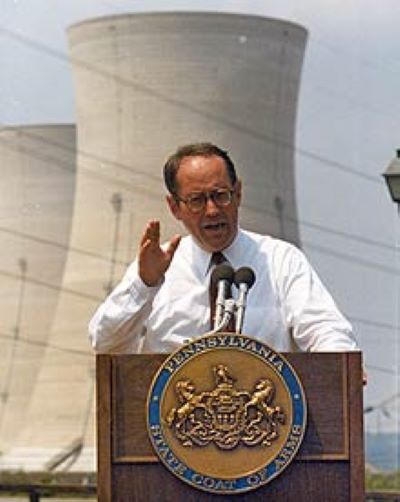 One of my favorite “teachers” passed on the turnaround between wretched 2020 and overburdened 2021. Richard Thornburgh, a former governor of Pennsylvania and U.S. attorney general, died on Dec. 31, at 88. I met him when I was a news correspondent in the Appalachians, and through the years I reached out a few times for comments and background – for a column on drug testing in baseball, for my biography of Stan Musial. Richard Thornburgh seemed to me a just person, a good teacher, a great storyteller who shared with me a close view of Musial, his boyhood hero in western Pennsylvania. Our first meeting was in Pittsburgh in 1971 when I was working on a story about a pollution case, involving acidic runoff from a factory into the Monongahela River, a few miles upstream from the confluence with the Allegheny to form The Beautifiul Ohio. The offending company was of modest size, but waiting in the docket were offenses attributed to huge corporations that contributed to Pittsburgh-area people holding their noses 24/7. Thornburgh was the federal prosecutor for Western Pennsylvania, appointed by President Nixon. He knew the Times was covering, and suggested I attend jury selection, and we would talk later. After a long morning session, we repaired to the bar at the Pittsburgh Hilton, with its scenic view of the confluence and the rugged hills, and Thornburgh gave me a quickie seminar on jury selection: -- Why had he excluded the woman with glasses who was reading a hard-covered book in a front row of jury candidates? Precisely, he said. He did not want people who might think outside lines he would be setting. Okay. -- Well, in that case, why had Thornburgh chosen, for foreman, a dean for a state junior college? Precisely, he said. He wanted somebody who worked in a structure, who was favorable to some form of law and order. Okay. As my seminar continued, I spotted two faces from my previous life – Al McGuire and Jack McMahon, basketball players and coaches from St. John’s University, my childhood team. They pulled up chairs, and the smart and gregarious McGuire began grilling Thornburgh on the case, and law, and other cosmic subjects. Thornburgh got in a few sage questions for McGuire, and seemed delighted that I knew these characters, from a vastly different world. The NYT was buying.) The case meandered onward after my little story, and eventually, polluters began to clean up their acts – courtesy of Thornburgh. Pittsburgh is a cleaner place today because of cases like that. https://www.nytimes.com/1971/06/24/archives/two-canoeists-may-win-bounty-in-pollution-case.html?searchResultPosition=3 I kept up with Thornburgh as he became attorney general and governor, when he was hailed for his leadership during the Three Mile Island nuclear threat. Later, he returned to private practice. During the drug scandals in baseball in the early 2000s, I found an essay Thornburgh had written about the complications of testing, citing his Yale friend A. Bartlett Giamatti, the baseball commissioner who had expired days after banishing Pete Rose for rampant gambling offenses. https://www.nytimes.com/2009/02/17/sports/baseball/17vecsey.html?searchResultPosition=1 While I was researching the Musial biography, I ran across Thornburgh’s name as part of a merry band of Americans who had met in Rome during the reign of the Polish Pope John Paul II. (James Michener, the writer, had described this confluence of superstars.) Musial had been Thornburgh’s favorite player during his childhood in Pittsburgh – and Thornburgh could imitate Musial’s batting stance as well as his autograph. We corresponded another time or three and then – bad news on the doorstep -- I picked up the paper on New Year’s morning and saw he has passed. I learned that his first wife had been killed – just like Joe Biden’s wife – in a car accident. Richard L. Thornburgh seemed to be a public servant in the best sense of the word. When I covered his pollution case, I got the feeling he believed companies really should not be pouring their crap into the river. Thank you, sir. * * * (Somewhere in my mental notebook, from one-off glimpses as a reporter, I keep a list -- a short list -- of Republicans I Have Seen Up Close and Respected: Richard Lugar of Indiana, Howard Baker of Tennessee, Fred Thompson of Tennessee, in his younger days. Christine Todd Whitman of New Jersey. John Sherman Cooper of Kentucky -- despite his hiring an amoral slug named McConnell -- Tom Davis of Virginia. John McCain of Arizona, with whom I spent two glorious hours in his Senate office. Plus, Fiorello LaGuardia, NYC mayor when I was a little kid, who read “the funnies” to people on Sunday radio. And Richard L. Thornburgh of Pennsylvania, my “mentor” in law and government service.) * * * Thornburgh’s life is described by the master of NYT obits, Robert D. McFadden. https://www.nytimes.com/2020/12/31/us/politics/richard-thornburgh-dead.html?searchResultPosition=1 The Musial biography, with anecdotes from Pittsburgh boy: https://books.google.com/books?id=0AkepOpOYEQC&pg=PA300&lpg=PA300&dq=vecsey+and+thornburgh+and+musial&source=bl&ots=yi6KqAhAC-&sig=ACfU3U2EvuMEiItQBzQmiI57zaLCW1jgqQ&hl=en&sa=X&ved=2ahUKEwjNqtDh6_rtAhUOw1kKHTa0DYUQ6AEwAHoECAEQAg#v=oepage&q=vecsey%20and%20thornburgh%20and%20musial&f=false Three Mile Island Recap: http://thornburgh.library.pitt.edu/three-mile-island.html What a waste. Nearly four years, over 235,000 lives, untold damage to the environment, friends betrayed, alliances broken. What a waste. But now we have a chance to start over, and I want to credit one source for the grace and vision and strength behind this chance to recover -- the Black public figures who made such a big difference. In the same year that a white police officer openly ground a Black man’s life into the pavement, the best and brightest helped elect a centrist who might, just might, pull some disparate parts together again. The tone of this election year was set by Blacks who have been preparing for years, for decades, for centuries, for this moment. One great part was former President Obama sinking a feathery impromptu shot as he strolled through a gym – one and done – and as he kept moving he said, over his shoulder, “That’s what I do” -- Just as when he sang “Amazing Grace” in a church honoring slain members. The tone of this election year was set early by Sen. Kamala Harris who began a primary debate by reciting racial injustices to one of her competitors, former Vice President Joe Biden. He blinked and took it, seemed to be listening, and months later he had the grace to select this accomplished lawyer/prosecutor/campaigner as his running partner. Grace under pressure, by both. * * * Now I want to praise four others who raised the grace level in this country: Rep. Elijah Cummings of Maryland passed last year, after setting a high level of righteousness in Congress. I witnessed him leading some sports/drugs hearings years ago, and ever since I have referred to him as The Prophet. In his final months, he admonished balky witnesses, “We’re better than this.”
Rep. John Lewis also did not make it to this election, but he had been setting an example since the police beat on him back in the ‘60s, at lunch counters and on the Pettus Bridge. He survived that, served in Congress, seeming so innocent but actually a living holy man, tempered in the flame. Stacey Abrams lost a narrow race for governor in 2018, and soon used her intelligent smile, her knowledge, her persuasiveness, to help register voters – Black voters – in the South, where the desire to vote means standing on line in heat or rain for many hours, by Republican plan. This week, Abrams’ work helped throw two Senate races in Georgia into runoffs, early in January. Rep. Jim Clyburn of South Carolina changed history by endorsing Joe Biden, who had just gone through two disastrous primaries in the frozen North. Clyburn is one of the most composed of politicians, no bluster, no swagger, just serene confidence. He read the mood of South Carolina perfectly, and gave the nation a Democratic candidate who could balance the disturbed posturing and fatal incompetence of Donald Trump. * * * The positive effect on this nation will carry over into the new year, the new regime. Trumpites gloried in their man depicting Philadelphia, any urban setting, as dangerous, but a white President and a Vice President who is part Jamaican and part Indian live up to the professed ideals of this country. As it happens, my family has some Jamaican and some Indian ancestry, as well as Black American, and Latino, and Asian, all kinds of Europeans, including the lady I live with who can trace herself to William the Conqueror and early New England settlers. One young man in the family – with some Black ancestry -- called his grandmother in a nearby Atlanta suburb on Saturday to deliver the news that Biden had won. * * * And Saturday evening, a joyous, liberated, masked, socially-distanced, horn-honking, all-colors-of-the rainbow-crowd in a parking lot in Delaware greeted the new look of the Biden and Harris camps -- people who seemed to like each other, and love their children and speak comfortably of making this country work for everybody. The mixed racial makeup in that crowd seemed to match the impromptu crowd in the streets of Minneapolis when George Floyd was murdered, only this time not to protest but to cheer, to smile, to breathe, Maybe, just maybe, things get better. For days before the election, I had this image, this memory, of a young woman crying on the phone to her father, in the midnight hours, in November of 2016.
How could this happen? She wanted to know. Well, so did we, and so did Secretary Clinton. I must have been clairvoyant because late Tuesday evening, my wife and I felt the same way. Four years later, and now this again? The best part of the evening was the stunning professionalism, on live TV, mastering the obscure counties of the U.S., handling the magic boards, like two pinball wizards, Steve Kornacki of MSNBC and John King of CNN. (We switched around.) My ballplayer pal Jerry switched to Judy Woodruff on PBS and raved about her calm neutral professionalism. I fell asleep with Biden on the bad end of a lot of numbers, but I woke up five hours with reassuring tweets from Deepest Pennsylvania and Way Upstate telling me that there was a chance. Trump was being Trump -- threatening to go to his judges on the Supreme Court. Twitter cut him off. Much too late for that. So now we are waiting it out. I still think of the young woman asking her dad from long distance: How? Why? * * * (Steve Kornacki got a great writeup in Variety today: https://variety.com/2020/tv/news/steve-kornacki-msnbc-election-1234822692/#comment-6345418 (One of his colleagues said they forcibly ejected him from the studio after pulling an all-nighter, sent him to a place with a bed and pillows. Well-deserved. Other than that, I am poleaxed by the mathematical complexities, the suspense, the rumors, the threats. . Going back to the tube soon. Your experiences and reactions the last 24 hours? * * * (This was my post before Election Day:) I got nothing. Maybe you have something. This malignant earworm has been proposing and doing mischief since he loomed on the escalator eons and eons ago. Now I am tapped out. I’m leaving this post out there, starting Monday morning. If you disagree with my point of view, please say so. Feel free. I’ve been typing about this guy for a while, reminding people that I grew up (on a busy street, houses close together), a crucial half mile from the Trumps. I resent the hell out of him being described as a “Queens guy.” I know Queens people, tens of thousands of them, who went into socially-redeeming lines of work. Just check out the “Trump” category to the right of this. I’ve said my piece. Nervous on the day before the actual Election Day? “Breaking News” on the actual voting day? Do Barr and the new Supreme Court pull some scam in the days to come? Get it out of your system, here. I’m already discredited. Pole-axed by the results in the midnight hours, four years ago, I kept telling people, “I know this guy. He will do something heinous, and will be out of office in 18 months.” They let him go on, and now we have a pandemic raging because he was always incompetent, and now it has become fatal. For all my blathering, the best two words of this endless campaign came from Michelle Goldberg in the NYT. On the night after the second and last debate, she wrote: Mocking Biden’s concern for struggling families sitting around their kitchen table, Trump tried to position himself as being above political clichés, but he just came off like a callous schmuck. A “callous schmuck.” I am so jealous. I am sure that some of the good people who read my little therapy website, and respond to it will have your own angst in the hours and days to come. Write something. (I've got nothing coherent to say at this moment about that "debate" or my sociopathic ex-neighbor from Queens. Perhaps you do. Please feel free to type away. The following was my open letter to Postmaster Louis Dejoy after I posted our ballots on Monday.) Dear Postmaster General Louis Dejoy: I just mailed our absentee ballots, both filled out correctly, to the county Board of Elections. I could have driven to the board’s office, or even walked, or used certified mail, but I figured, that’s only 7.28 miles – that is, .2 miles per day. That shouldn’t be too hard for Louis Dejoy’s post office. I know this is a stressful time for you, what with The New York Times’ blockbuster about your patron’s tax issues. He’s going to be looking for somebody to punish, and will not be happy if you let too many of those absentee ballots get through. After all, you were hired to take a sledgehammer to the voting procedure, what with many millions expected to vote during the Pandemic. And from what I hear from USPS employees, you did a good job – slowing the mail down. Where does he find people like you? Just the other day, you said you could not use the sorting machines you took out of use. Either you demolished them, or you cannibalized them for parts -- sounds like the Louis DeJoy wrecking ball, either way. As you may have been told, there are voters way out there in rural red states areas -- at the head of the holler in Mitch McConnell's state -- who depend on the USPS vehicle to bring checks and medicine. So either you serve the people of the country or you serve the anarchist Donald J. Trump. Must be a stressful time for you. Meantime, point-two miles a day. You can do it, sir. Comments? Please, You'll feel a bit better for a moment.
|
Categories
All
|

